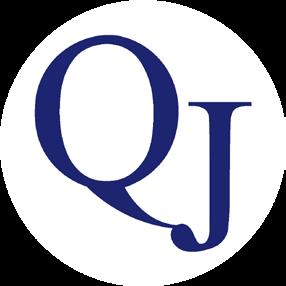

After two-year hiatus Bader College reopens for Winter 2026
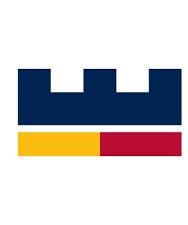

Academic programming planned to shift away from undergraduate course offerings
to faculty-led international learning, hosting students from Queen’s and partner institutions, offering research residencies, such as Scholars Retreat and expanding lifelong learning opportunities.
According to the announcement, the Scholars Retreat is meant to be a one to six-month stay at the castle to provide “academics, postdoctoral researchers, and graduate students with a dedicated setting for research, writing, and reflection.”
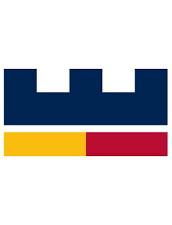
The University also launched the Bader College Academic Programming Development Initiative to support new undergraduate and graduate programs at the castle. The initiative will provide multiple awards of up to $10,000 to fund successful course proposals.
year closure, reopening with a new academic focus.
Bader College will reopen for classes in 2026, the University announced on Sept. 25 in
Herstmonceux Castle, sending students home to finish the semester online.
“This fall, the essential repairs to the castle building [...] will be completed, and all areas of
next few years, but they won’t have an impact on operations at Bader College,” the statement read.
The return comes with changes.
Bader College will shift from undergraduate-only programming
“Alfred and Isabel [who donated Herstmonceux Castle] envisioned the castle as an international study centre, bringing Queen’s students and faculty into dialogue with their peers from around the world, and providing a venue for discussions across cultural and national boundaries,” Lecturer at Bader College Diana Gilchrist said in the Gazette article.
These proposals will be evaluated by the Bader College Academic Programming Committee, which is comprised of the Vice-Provost (Teaching and Learning), two Queen’s faculty members, a student representative, a representative from the Bader College leadership team, and a representative from the Centre for Teaching and Learning.
There are also plans to rewild much of the outdoor grounds of the estate, which have been farmed in previous years. The project was initiated several years ago but is now in full development, with more information to come in the upcoming months.
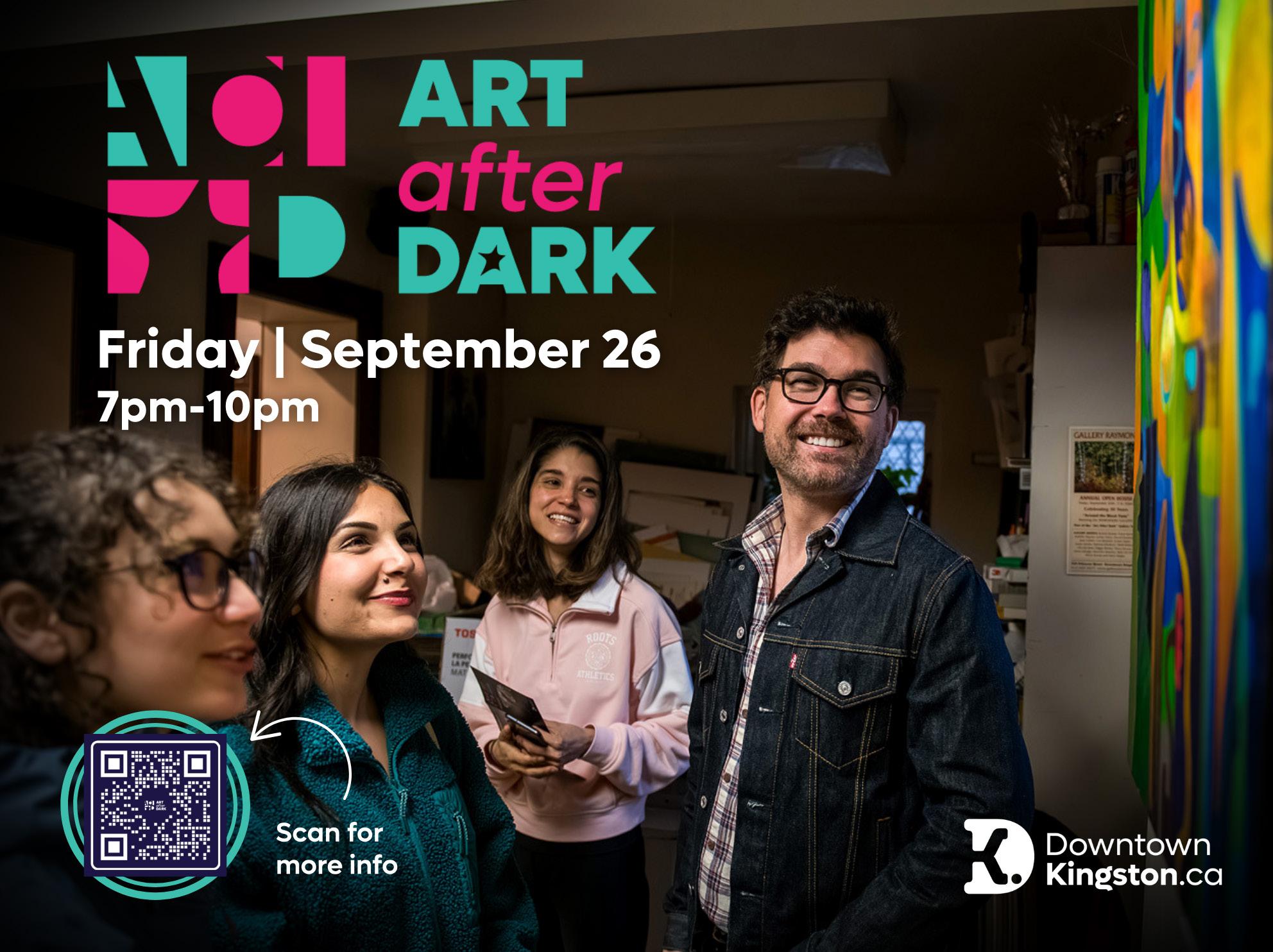





J onathan R eilly Senior News Editor
Herstmonceux Castle in England.
GRAPHIC BY JULIA LUDDEN
Following national headlines, faculty speak out against Nous Group Via Rail pilot
pRoject leaVes students upset
Schedule changes were made in an effort to shorten journeys
eMMet Paradis Contributor
The removal of morning Via Rail stops in Kingston threatens to complicate travel plans, according to Queen’s students.
On Sept. 21, Via Rail announced a three-month direct service pilot on key Montreal-Toronto routes starting Sept. 29. Trains 60, 61, 68, 69 and 50 will no longer stop at Kingston, Belleville, Cobourg, Oshawa or Guildwood during morning runs. Passengers at these stations will need to transfer to other trains if seats are available. On average, about 80 Kingston passengers use trains 60, 50, 68 and 69 each day.
Via Rail reassured that Kingston would continue to be the most served in Canada, with 154 weekly departures or up to 25 trains a day. The company went on to write that Kingston “remains at the heart” of its network with more departures than Ottawa, Toronto, Montreal or London
The program aims to shorten end-to-end journeys by up to forty minutes, believing faster travel times will make trains more competitive with planes and cars, according to Via Rail’s statement to The Journal
Still, Queens students are frustrated.
Roshan Jaitly, ArtSci ’29, relied on the morning train to visit friends and family.
“Losing the morning train means I have to hang around for hours before I can even leave. I’ve seen students miss plans waiting at the station,” he said in an interview with The Journal.
“It’s inconvenient.”
Jaitly also expresses the difficulty in planning these trips with a tight school schedule.
“It’s not just me, I know other students who rely on this to visit home or see family. Having to wait for later trains messes up schedules and makes it more stressful.”
Nathan Senior, Sct ’29, said it’s a cost factor.
“Trains are already expensive compared to buses,” he said in an interview with The Journal. “If it gets harder to get home, I’ll probably take the bus. It’s cheaper but not as quick or comfortable.”
As a full-time student, Senior also finds it hard to balance the scheduling.
“Waiting around for transfers can add hours, and when you’re balancing school and responsibility, every hour counts,” he said. “The train was my go-to because it was predictable.”
Kingston Mayor Bryan Paterson and MP Mark Gerretsen both criticized the cuts, arguing they
As consultants shape strategy, questions are raised about the University’s priorities
LiLLy Meechan Assistant News Editor
With growing concerns that universities are prioritizing efficiency over education, Queen’s is no exception.
The University informed staff in 2024 that it had hired an Australian-based management consulting firm, Nous Group, to assist with campus-wide restructuring under the Queen’s Renew Program. The firm was hired to identify problem areas in spending, conduct a benchmarking survey and advise on solutions and savings. Despite the goal of increasing efficiency, a faculty member is raising concerns about its role and potential impact on academic decision-making.
Dan Cohen, an associate professor in the Department of Geography and Planning, told The Journal he’s troubled by the University’s growing reliance on external management consultants. He emphasized that his concerns aren’t about any single firm, but about the broader trend of consultants taking on a greater role in university governance, which he believes should remain grounded in collegial decision-making.
In a statement to The Journal, the University described Nous’s work as focused on operational efficiency and fulfilling government reporting requirements.
“Nous is a consulting firm providing financial modelling and analysis for universities, including Queen’s. For example, Nous supports the work of the Queen’s Renew Program, focused on ensuring the university’s professional services (such as HR, Finance, and Facilities) are operating effectively and efficiently.”
While the University emphasized the advisory nature of Nous’s work, Cohen raised red flags about the wide scope and structure of Nous’s consulting model following their acquisition of Cubane Consulting, a firm specializing in service effectiveness through surveys. This has now resulted in Nous not only advising on issues but also being tasked with identifying them.
“They did this kind of benchmarking survey, […] and lots of people had to fill out surveys about how they felt about different services at Queen’s […] in the
hurt regional access and warned of further isolation for the city.
Via Rail acknowledged this change will inconvenience some customers but said the trains selected for the pilot have fewer passengers than others on this route. According to Via Rail the project will be evaluated based on ridership, punctuality, and community feedback.
“It’s too early to determine whether the program will continue beyond this pilot phase,” the statement read.
Passengers affected by the change will still have access to other Via Rail services stopping in Kingston, but transfers may mean longer travel times and uncertainty about available seating.
moment that people are also being laid off.” Cohen said. “They’re doing both ends of the scale. They’ll tell you what your problem is and then have the solution ready to sell for you.”
While efficiency has been central to the administration and Nous, Cohen says the push for operational efficiency involved tradeoffs. He notes that the benchmarking process relies on standardized, quantifiable metrics, which may not fully capture the quality or effectiveness of the work being measured.
Cohen expressed concern that the combination could reshape Queen’s in ways that deprioritize its academic strengths.
“The original draft of the
Bicentennial vision and the 300-seat transfers that happened out of the Bachelor of Arts program last year signal pretty strongly that, in general, the social sciences and humanities are being de-emphasized at Queen’s,” he said.
Faculty, he said, are responding by using available governance
mechanisms such as Senate. But Cohen also emphasized the power of students to influence the University’s direction.
“Students make up a strong number [17] of senators in the Senate, and they all have votes equal to the administration and faculty,” Cohen said. “Students should know that they’ve quite a bit of power, and they should be in touch with their senators.”
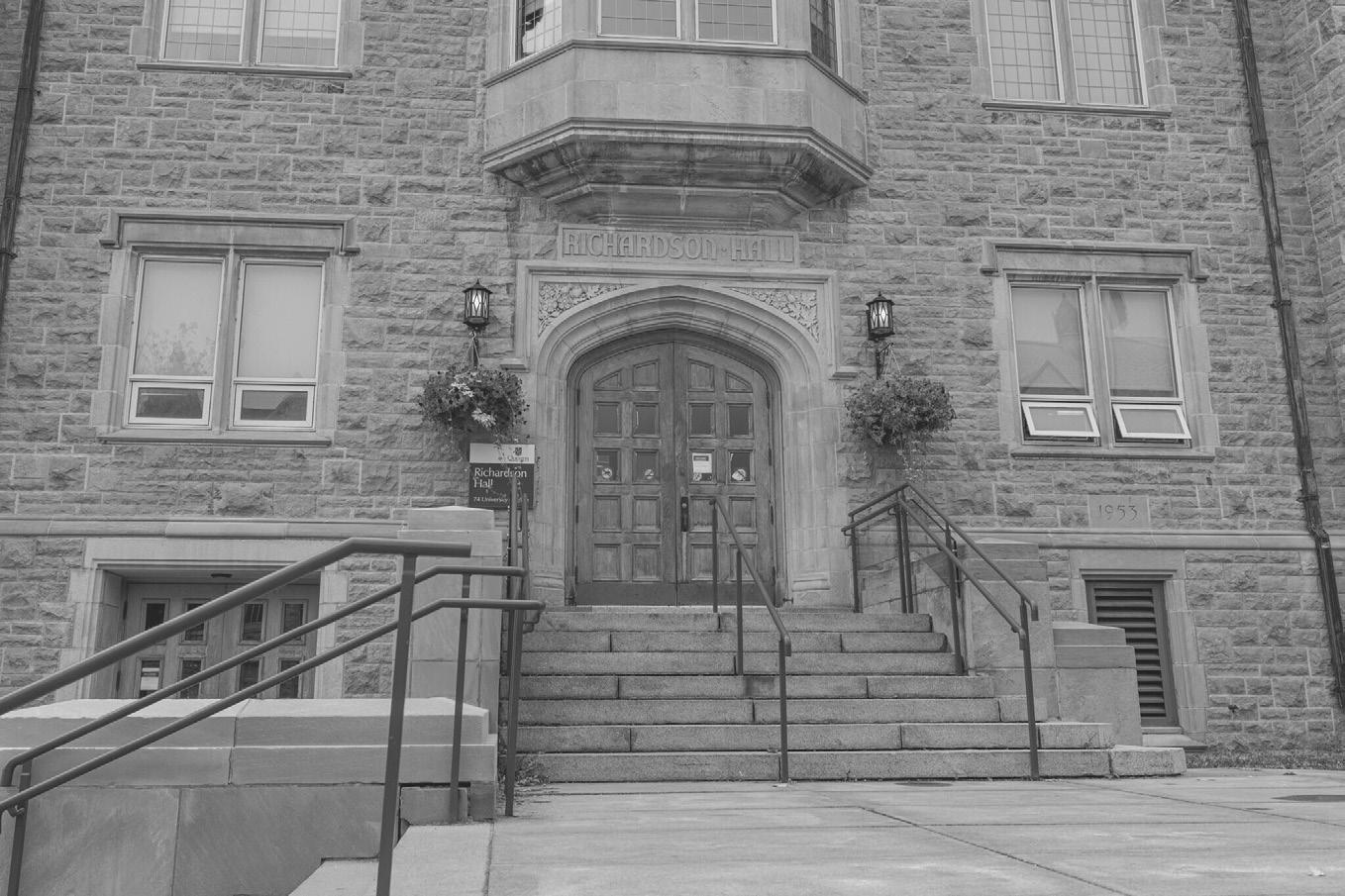
Inside Kingston’s clubs fight against fake IDs
The Ale House, Trinity Social, and the Royal Tavern 2.0 reveal their detection methods
yaeL rusonik Assistant News Editor
For nightlife venues in Kingston, every ID tells a backstory—but some are fiction.
The Journal spoke with some of the largest bars and clubs in Kingston to learn how they go about detecting fake IDs and preventing underage drinkers from entering their businesses.
Reuben Bowley, general manager at The Ale House, explained that on a weekend night, his club can turn away as many as 150 hopeful attendees on suspicion of using fake IDs. He explained that while the club does use scanners, the bouncers rely more on visual methods in deciding whether an ID is real.
“Everyone kind of IDs differently,” Bowley said. “When I do it, I go for the face first. The chin and nose are really easy. There are also different cues to look at, the boldness of the writing, the black lights, the barcode, colour, all that stuff.”
John Saris, co-owner of Trinity Social, similarly considers visual clues—from the details of someone’s ears or jawline, to the shape of their nose. “You might [be borrowing the ID of] a brotherorsisterthatlooksexactly like you, but they’re a foot taller. Height is a great tool for us,” Saris said.
The Royal Tavern 2.0 employs both visual and behavioural cues, according to the co-owner Katie Layman. “They might avoid eye contact,” she told The
Journal. “If it appears everything is matching up on the ID, but we have a little hesitation, then we ask them questions; what is their postal code, what is their name.”
Layman and Saris say the most common fake IDs seen at their venues are government-issued IDs that have been borrowed from a sibling or friend, with counterfeit IDs posing a smaller issue. Bowley claims that Ale House sees a more even split between the two types.
The businesses also differ in their perspectives on confiscating these fake IDs. Bowley and Layman claim to never take them, as they are private property. Trinity, however, is more willing to confiscate IDs when the situation calls for it.
“I definitely have confiscated IDs,” Saris said. “We aren’t really allowed to, but occasionally it does happen because the person is a repeat offender, and we tell them they can come back and get it tomorrow.”
What all the venues agree on is the importance of exercising the right to ask for a second piece of ID. Bowley claimed Ale House
engages in the practice 75 to 80 per cent of the time, Saris confirmed Trinity double-pieces “all the time,” and Layman said the Tavern asks for a second ID about 50 per cent of the time.
In the 2024-25 school year, the Tavern faced some issues with underage drinkers attempting to sneak in, both with fake IDs at the main entrance and through emergency doors in the back. In response, Layman, who only took over the business in August 2024, has purchased scanners and added additional security to all entrances of the Tavern.
“Last year we had one [security officer], we are now at four,” she said. “So, their chances of coming in the back or the emergency exit are no longer happening, and we have done aggressive training on how to catch the fake IDs.”
The Journal contacted Kingston Police for a comment about issue, but was told the police had no involvement with IDs.
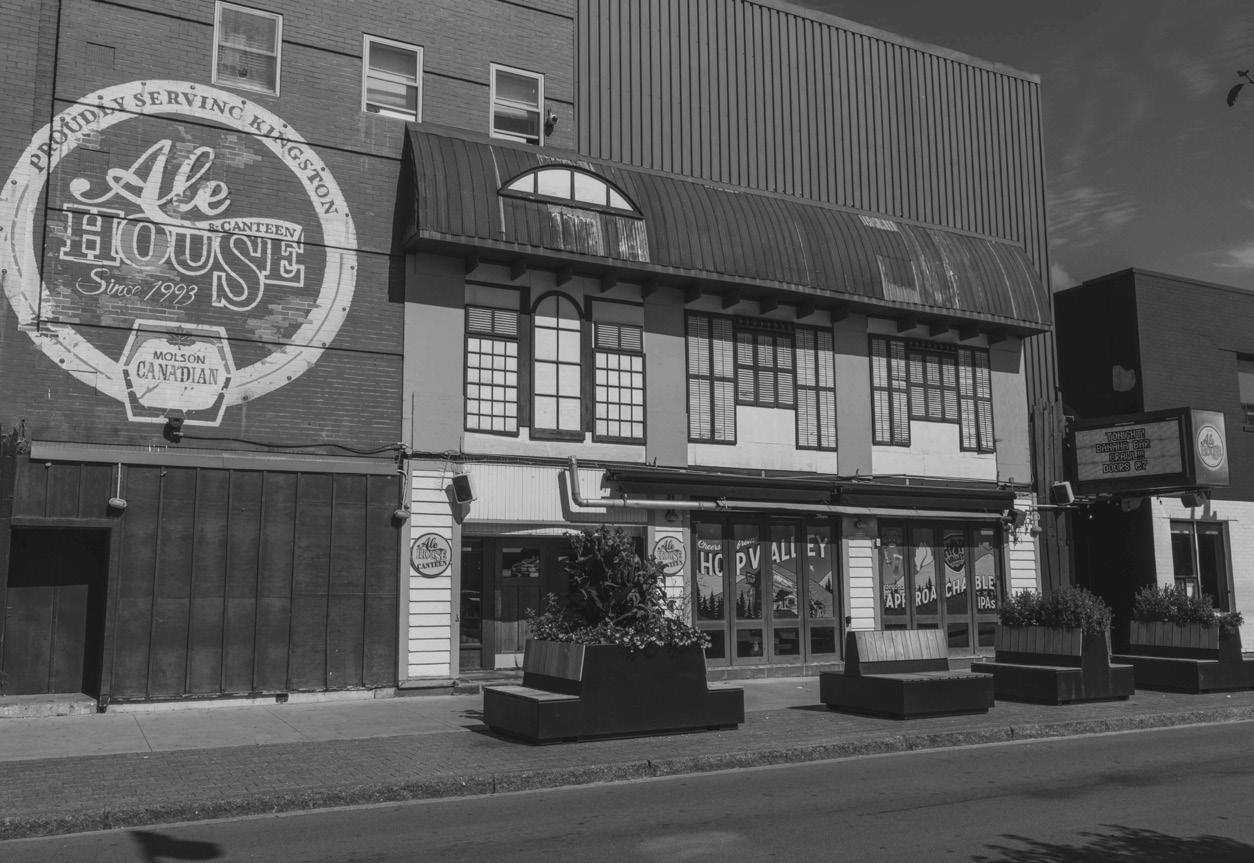
The Ale House rejects up to 150 IDs on a busy.
PHOTO BY JASHAN DUA
PHOTO BY JASHAN DUA
NOUS was hired by the University in 2025.
Residence Don highlights concern of rising workload in the wake of unionization
Added duties leave dons struggling to balance workloads with full-time studies
yaeL rusonik Assistant News Editor
Behind residence hall doors, dons are feeling burned out.
Residence dons have raised complaints about an increase in their workload since they first unionized in March 2023 and finalized their collective agreement in April 2024. Their union, United Steel Workers Local 2010, claims that Residence Life didn’t declare there would be any additions to don workload while at the bargaining table ahead of the 2024-25 school year.
While Sophie*, a don interviewed by The Journal, only took on the role post-unionization, she claims returning dons “were surprised by the increase in workload.”
One change she pointed to was the introduction of Intentional Conversations—one-on-one check-ins are required to schedule with each member of their floor, which Sophie claims can include anywhere from 20 to 45 students. These check-ins, which were mandated in September, October, and December, took Sophie seven
hours during the first week of the school year.
She also claimed the number of socials dons are required to host and participate in has increased since unionization. Dons must attend and organize four socials per month, except in October, totalling at least four hours monthly. Additionally, they’re responsible for creating posters, logging each social beforehand, and completing a post-event log.
In a statement made to The Journal, the University said, “There has been no increase in the total hours of work expected of Residence Dons” since unionization.
While they admit weekly responsibilities for a don may vary, they claim the role continues to average 25-30 hours of work per week, with The Collective Agreement outlining a clear process through which Residence Dons can raise concerns about their workload.
The University also said that they “remain committed to ensuring their workload is manageable, meaningful, and aligned with our shared goal of student success.” But Sophie doesn’t always feel this is reflected in the workload expected from dons.
“We’re also students studying full time, and it’s hard to be successful academically if we’re committing so much time to also working in residence,” she said. “They have really high expectations of us,
Calls for divestment from Israel arise following petition
Queen’s refuses to address questions on whether the petition will be considered
Jonathan reiLLy Senior News Editor
Less than a year after Queen’s decision not to divest, Palestinian activists have fired off another petition.
Queen’s University Faculty and Staff for Palestine (QFS4P), a Palestinian advocacy group and local chapter of Faculty4Palestine, has put out a petition calling on the University to cut ties from “all corporations and institutions complicit in genocide, settlercolonialism, apartheid, or ethnic cleansing against Palestinians,” and to “divest from companies and corporations profiting from Israeli apartheid.” The petition was announced on QFS4P’s Instagram on Sept. 18 following a UN commission finding that Israel was committing a ‘genocide’ in Gaza. The petition comes after a previous request for divestment was heard but ultimately denied under Procedure 2 (Special Requests) last March—the procedure that mandates the
which is good; it’s a competitive job to get into. But at the same time, we’re going to burn out. We don’t have an infinite amount of resources and energy.”
In an interview with The Journal, USW 2010 President Kelly Orser claimed the union only received two complaints last year regarding an increase in workload.
“We may have received one, maybe two emails from dons,” she said. “But nothing indicated that there was an issue. If the union hears about it from multiple [dons], then we would know that there must be something going on, and
we could put in a grievance.”
Sophie explained, however, she feels there’s a fear culture that makes many dons hesitant to voice complaints. She said many dons believe that if they cause any trouble, they will simply be replaced.
Orser claims that the union had received and addressed unrelated grievances from dons over the past year but only realized there may also be grievances relating to workload at an orientation session this August.
“We’re definitely aware and working towards finding out what
the concerns are for dons as it relates to the workload,” she said. “Because in that orientation, there seemed to be a lot of nodding heads, a lot of consensuses. We didn’t do a vote, we didn’t have people raise their hands, but I could tell from the front of the room that something is up with work.”
As the union prepares to head back to the bargaining table next year, they’re hoping to hear more feedback from dons. “Reach out to your union, that’s why you pay dues, that’s why we’re here,” Orser said. *Name changed due to safety concerns
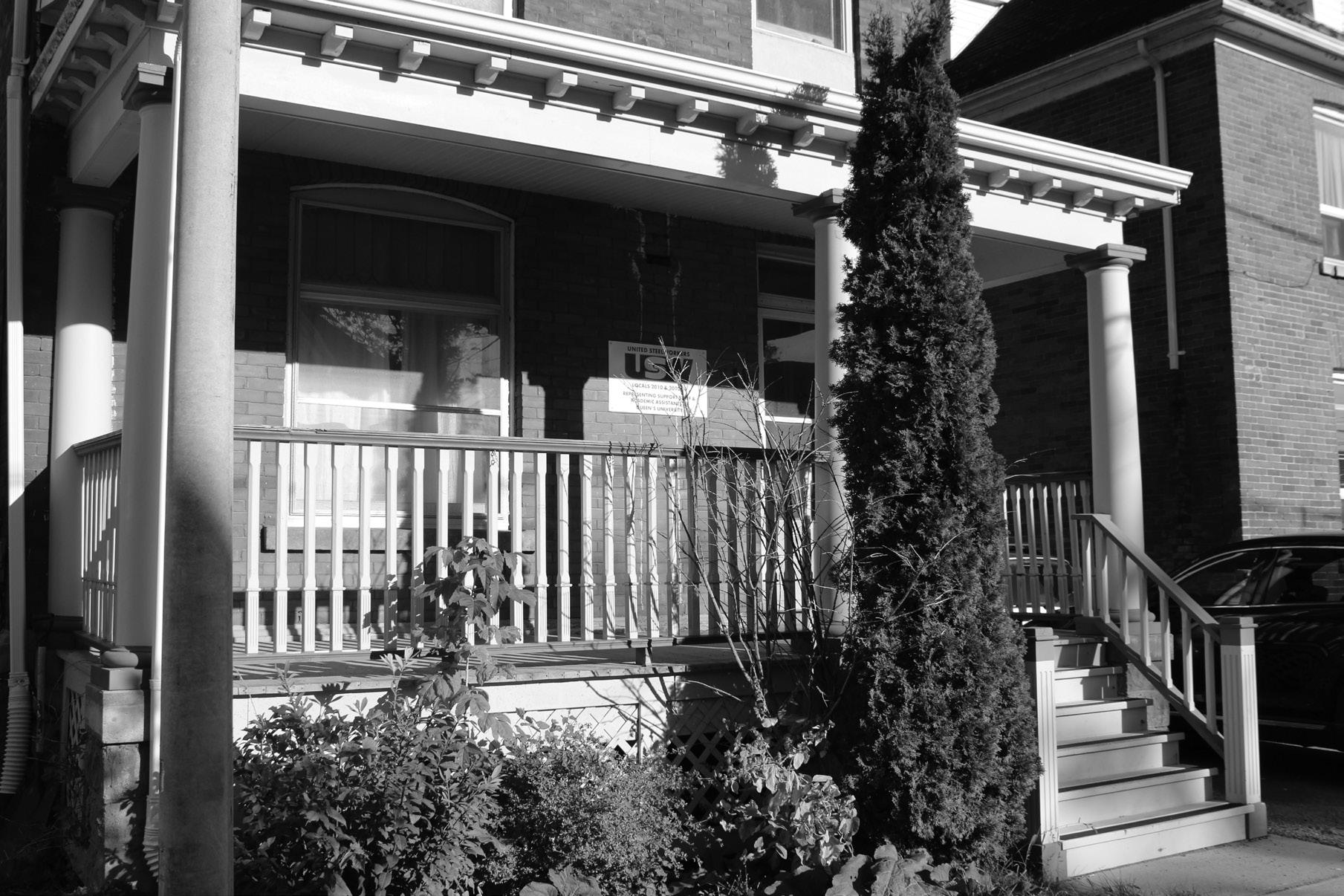
companies and funds, including Amazon, Chevron, and Exxon Mobil.
University to hear cases for divestment if a petition garners enough signatures. Requests under Procedure 2 were put on hold in order to undergo a policy review but have yet to be reinstated.
Despite specific requests from The Journal, the University didn’t say when the Procedure review will be completed, how it’s being conducted, or whether it will reconsider divestment after last year’s rejection
“The Investment Committee is currently reviewing the Responsible Investing Policy–Procedure 2– Special Requests. A moratorium on new requests is in place until that review is complete, and no new requests have been received at this time,” the University wrote.
In a statement to The Journal, QFS4P expanded on the specific companies they’re calling for divestment from. They pointed to Queen’s Apartheid Divest Coalition (QUAD) research, which highlights specific
QFS4P also added that according to QUAD’s research, the University has $150 million invested in companies, which covers “weapons manufacturers, technology companies, oil companies, banks, and other service providers that directly contribute to this violence.”
Alongside divestment, the petition also calls for the establishment of five scholarships that will be maintained for the next 10 years, valued at $40,000 per student per year, for Palestinian
students “who have been impacted by the genocide or the apartheid regime.” QFS4P also expanded on why they feel this scholarship is important, in addition to the call for divestment.
“While we do expect the University to finally address its silence around the deaths of colleagues and students and the destruction of Gaza’s educational system, these scholarships are a concrete step toward addressing scholasticide. They provide tangible support for Palestinian students and help to correct the
university’s inaction,” QFS4P wrote.
QFS4P added that this was the only new request in this year’s petition, explaining that in their eyes, this would be in line with the University’s previous decisions. While QFS4P still worries their petition might not be considered, they’re hoping the administration “will finally come around; and we’ll certainly continue to put pressure on the administration.”
“Change is a matter of political will, not institutional policy—the University is making its own policies, after all.”
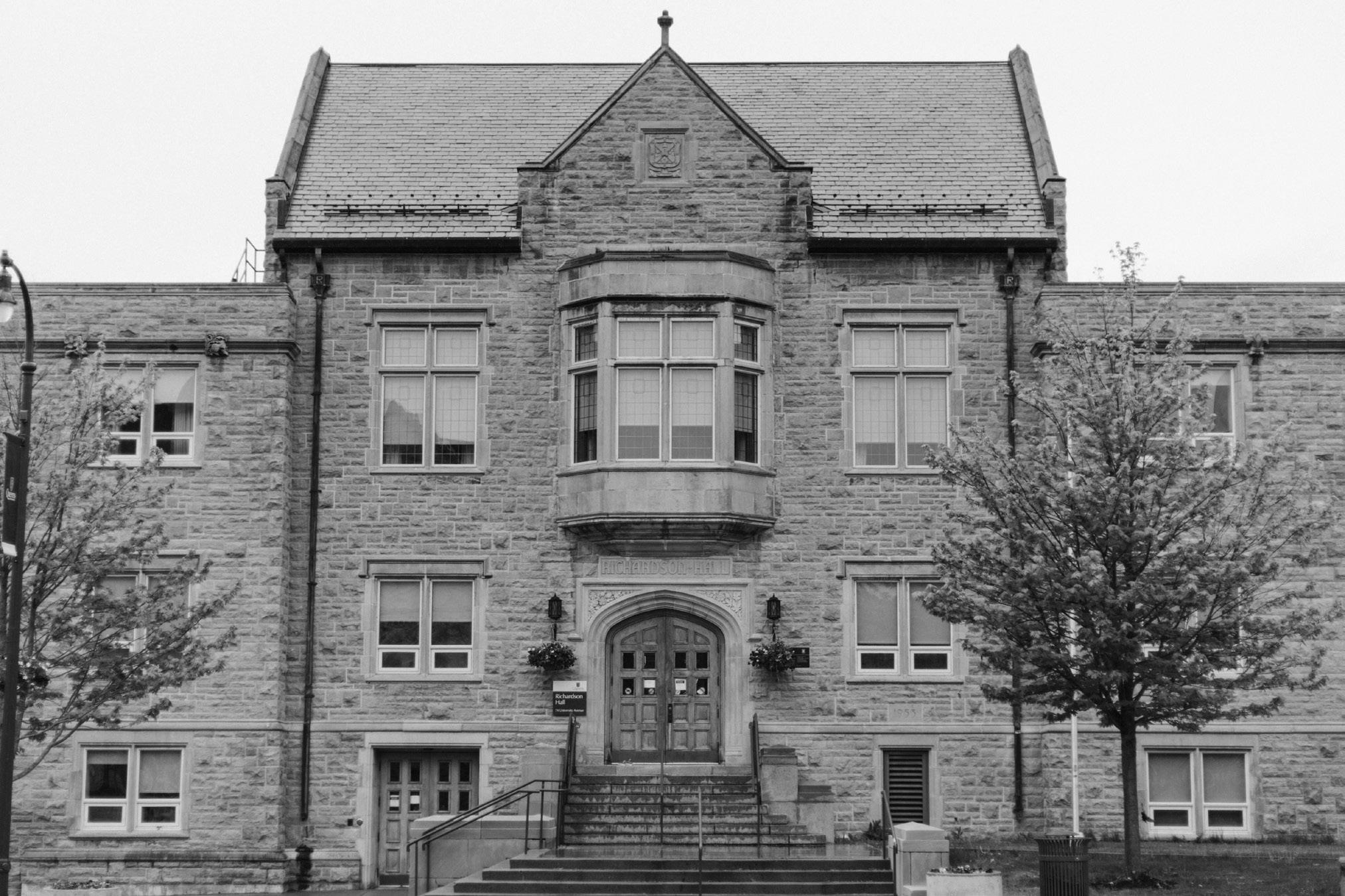
The Residence Dons first unionized in 2023.
PHOTO BY CLAIRE BAK
PHOTO BY CLAIRE BAK
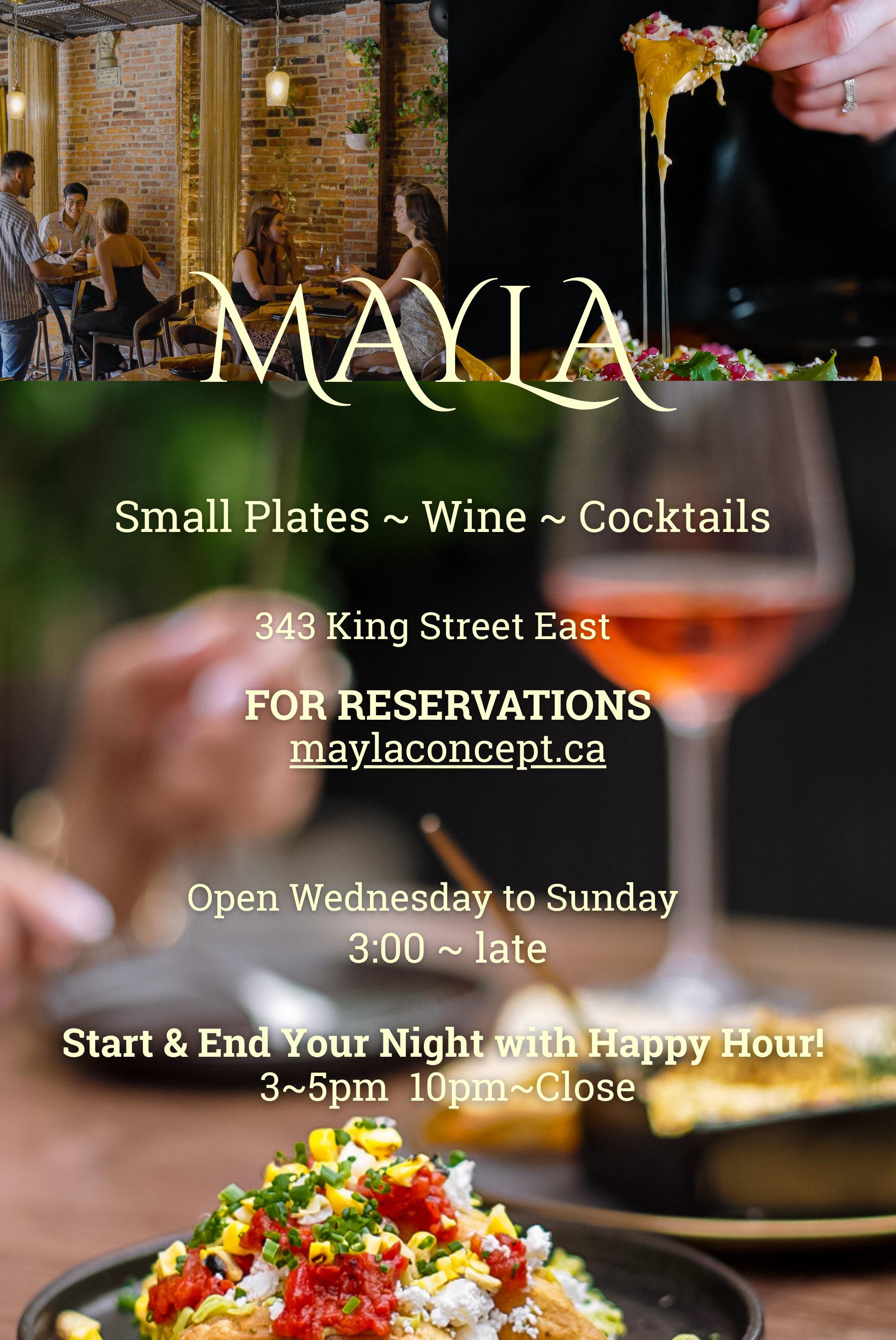
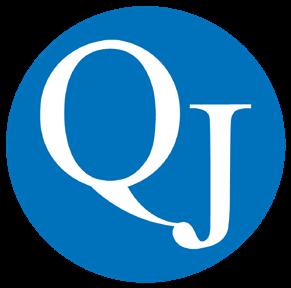
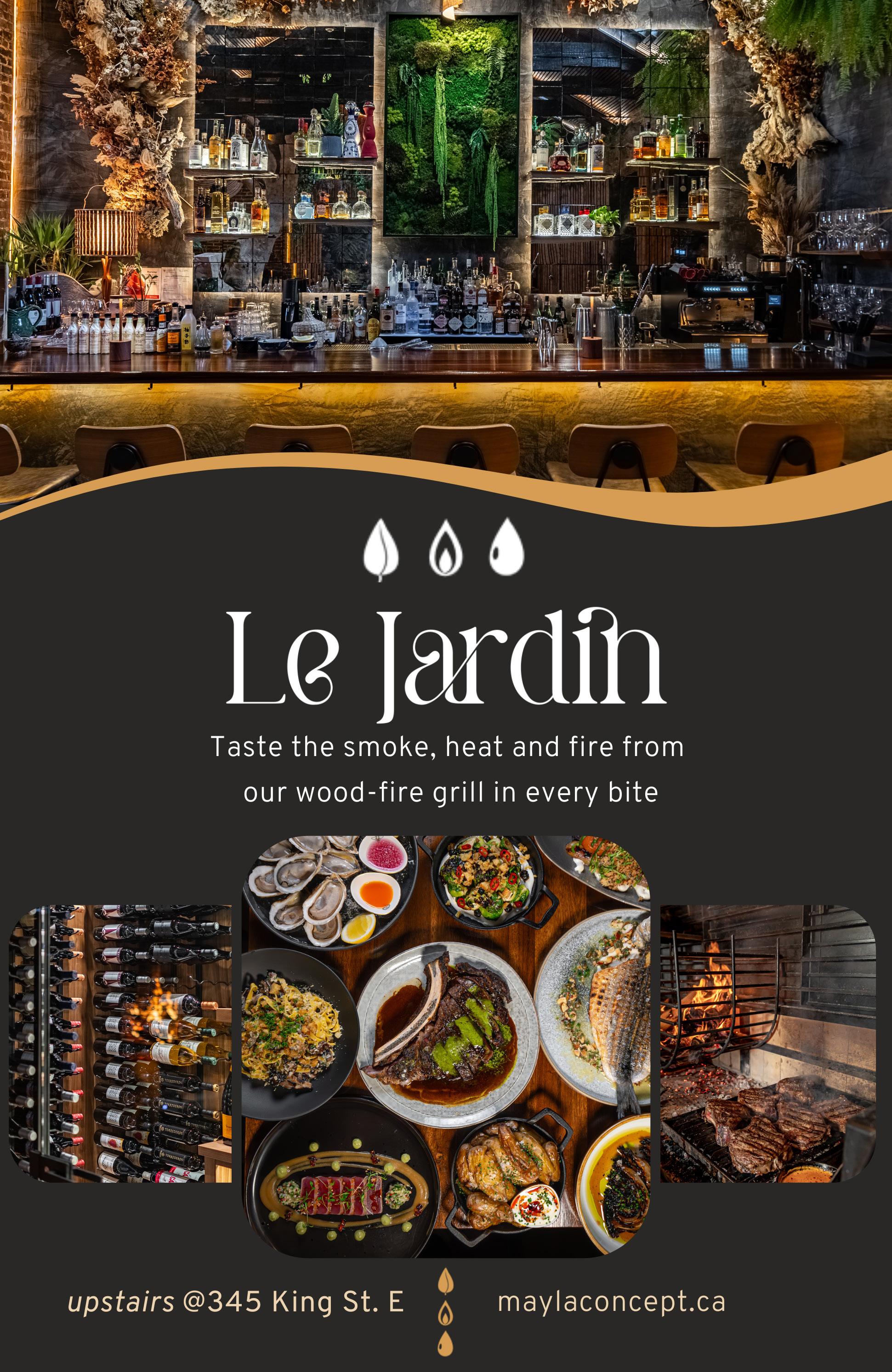

FEATURES
Between freedom and frustration: Students weigh online learning’s trade-offs
Students claim online courses are beneficial for flexibility, but at the cost of connection
Lauren Nicol Features Editor
This story first appeared online on Sept. 19.
As Queen’s moves away from the traditional lecture hall, students are turning to online courses for flexibility—but many say the experience comes with unexpected frustrations.
Overwhelmed with mandatory lecture times clashing with her degree and post-graduate requirements, Gabriela Villate, ArtSci ’27, turned to online classes to manage the overload.
Villate explained that scheduling conflicts often left her with few choices. “I find that a lot of classes are only offered online, or they’re only offered in-person once this academic year, and it has an overlap with other classes that are in the same situation,” Villate said in an interview with The Journal
While students like Villate turn to online classes out of necessity, the University frames the expansion of online learning as a matter of choice and accessibility.
Queen’s offers more than 120 online courses spanning a wide range of learning experiences, but most students remain in Kingston completing in-person degrees, Associate Dean (Teaching and Learning) William Nelson said in a statement to The Journal
The variety in course formats, from self-paced modules to live lectures, shapes how much time students actually spend engaging with online material.
While Arts and Science Online Learning recommends 10–15 hours per week for each online course, Villate reports spending closer to six hours, plus extra time reviewing for assignments and tests. Nelson explained that course formats vary, with some allowing fully self-paced work and others including live lectures, highlighting the flexibility online learning is meant to provide.
Villate said that in science-specific classes like ANAT100, she approached online learning by carving out free time during the week, tackling readings and course content at her own pace each day. But over time, her schedule became crowded not just with in-person lectures and tutorials, but also with ungraded discussion posts she viewed as largely unnecessary, tasks meant to foster peer engagement that often felt more like an added burden than a benefit.
In her PSYC100 class,
Villate explained how she had to complete four discussion posts, one herself and replying to three others, in order to have her work for the week graded. “The discussion boards become a waste of time, and it’s a pretty demotivating feeling, like you
she struggled to adapt to the more subjective grading style of humanities courses.
“I find it really difficult as a STEM major to be confident in my work that is more subjective in grading,” Villate said. “I don’t have any guidance when working on the assignments, and emailing the professor 10 questions a day isn’t exactly an option [when you are taking a class online].”
Villate sees a broader issue with online learning in the lack of immediate feedback and face-to-face interaction, which makes it harder for students to clarify expectations and build confidence. In in-person classes, she often stays after lectures or tutorials to ask professors or teaching assistants questions— an opportunity that is largely unavailable in both
Unit, a learning development design to create engaging online learning modules.
According to Philbrook, students have varied reasons for choosing the online program, but one of the most common is the flexibility provided by online courses.
“One of the common themes we do see is that students appreciate the opportunity to complete a degree that offers the level of flexibility that our online courses provide while also not being required to uproot their lives to move to Kingston,” Philbrook said.
Although the University promotes the integration of fully online students into campus life, the AMS doesn’t recognize online students as members, meaning they’ve no representation in the AMS assembly or other levels of

and your discussion members don’t actually care and are just forced to respond to each other,” Villate said.
While Villate found the discussion posts frustrating and disengaging, program administrators say they serve as a substitute for the interactive elements of in-person classes and offer additional opportunities for support.
Director of the Bachelor of Health Sciences program Nikki Philbrook wrote in a statement to The Journal that discussion modules are often used to facilitate group discussions amongst students that would typically take place in an in-person class, and many professors also provide office hours or optional tutorials to connect and support students.
While some online courses, like those in health sciences, offer structured support and interactive opportunities, Villate’s experience in a humanities course highlighted how online formatscan vary widely, leaving students to navigate less guided, more subjective work on their own.
This year, Villate decided to take an online humanities course, RELS131, and found the online format to be a stark contrast to her typical science classes. With less guidance from professors on how to navigate the assignments,
synchronous and asynchronous online courses.
Based on her experience, Villate finds professors often try to address this through online discussion forums, but she finds them ineffective and slow, preferring virtual office hours to get timely answers and guidance. “Having a TA or classmate answer your question two days after asking it feels different from lining up after lecture to ask your professor,” Villate said.
Villate’s struggles with delayed feedback highlight the challenges students face as online learning becomes an increasingly central part of Queen’s course offerings.
The role of online classes at Queen’s has only extended in recent years. Since the COVID-19 pandemic, Queen’s has expanded their online learning offerings where students can complete degrees without ever setting foot on the Queen’s campus, according to Philbrook.
There are several degrees that can be completed fully online, including the Bachelor of Health Sciences program, which is now offered both fully online and fully in person, with both formats having the same curriculum and requirements to graduate. For the online program, students often complete their courses with online modules developed through the Course Development
degree, choosing them for the flexibility to manage her schedule and learn at her own pace from home. However, she often finds that online modules contain too much information to process effectively, making the content harder to digest. With less ability to gauge student comprehension, professors rarely revisit material that students find c hallenging, according to Yap.
In a statement to The Journal, Yap said she generally finds her online courses easier than in-person classes. However, she often struggles with motivation and procrastination, since modules typically lack firm deadlines beyond assignments, requiring students to hold themselves accountable each week. While she attributes much of this to personal discipline, she also believes course structure could be improved by reducing filler content and making online material more engaging.
The self-discipline required for online learning extends to professor-student interactions, according to Yap. She explains that while she doesn’t feel there’s less interaction overall, professors rarely initiate contact, making it essential for students to reach out. She also noted that online professors generally respond more quickly to e–mails and discussion board posts than those who teach exclusively in person.
student government, including faculty societies.
AMS President Jana Amer wrote in a statement to The Journal that fully online students aren’t considered to be AMS members because full-time online students aren’t fully connected to the spectrum of AMS services and supports. Students can choose to optinto an AMS membership if they’re taking at least one in-person class.
“Students who qualify [by being in at least one in-person class] and opt in gain all rights and privileges of membership, including the ability to vote in AMS elections, access AMS services, and benefit from programs like the Health & Dental Plan and Bus-It pass,” Amer said.
Amer notes that fully online students can access the mental health service Empower Me and benefit from the broader University resources.
While online students can access services like Empower Me, the rise of online learning affects not just individual experiences like Villate’s but thousands of students across Queen’s, with 1, 572 undergraduate distance studies students as of the 2021-22 academic year.
Hayley Yap, ArtSci ’27, has taken several online courses while completing her in-person
Like Yap, Kalan MorrisPoolman, CompSci ’27, appreciates the flexibility online courses offer, highlighting how elective options can make navigating a busy schedule easier while still engaging with interesting material.
In a statement to The Journal, Morris-Poolman said he’s taken both ASTR 101 and PHAR101 online, noting, like Yap, that online courses are generally easier in content since recorded lectures can be revisited to clarify material. However, he echoed Yap’s point that without immediate deadlines, it can be harder to stay motivated, which can lead to work piling up.
“It can be quite challenging at times to find the motivation to work through the coursework when there is nothing immediately due, which can lead to work piling up and, in turn, exacerbate the difficulty of finding motivation, triggering a cycle,” Morris-Poolman said.
He added that online courses could be improved by reducing the amount of required reading and emphasizing pre-recorded lectures from professors, which he believes would lessen student isolation and help them feel more connected to their instructors. Queen’s is developing a growing number of professional and graduate programs specifically for online delivery, with a focus on maintaining academic rigour in these courses.
Continued online at www.queensjournal.ca
Online classes began on Sept. 2
IMAGE BY CLAIRE BAK
EDITORIALS
The emmys’ missed The mark on boTh chariTy and comedy

Journal
Editorial Board
Nothing says Hollywood like turning charity into a gimmick.
On Sept. 14, the 77th Emmy Awards began just like any other until host Nate Bargatze revealed their new plan to reduce long speeches. Bargatze announced $100,000 was going to be donated to the Boys & Girls Club of America, but the donation would drop by $1,000 each time a winner gave a speech over 45 seconds. There was something uniquely
ILLUSTRATION BY CLAIRE
dystopian about watching a room full of rich people make jokes about money that means far more to its beneficiaries than they will ever know.
The money counter was extremely out of touch and gave the ceremony a rushed feeling—leaving a bad taste in mouths as to why the gimmick needed to happen in the first place.
Taking a few steps back, what’s surprising is the number of people who had to approve of the money counter idea before
it came to fruition. It’s hardly believable that no one within CBS raised any concerns regarding the tally, suggesting they knew how controversial it would be—knowledge brands have been capitalizing on.
Discourse surrounding the tally at the Emmys comes at a time when award shows are rapidly decreasing in viewership, suggesting there might have been a marketing scheme even more ethically dubious at play. Controversy marketing is when an event or statement intentionally sparks debate to generate attention for a brand, or in this case, a show.
There’s something uniquely wrong about using people’s real-life problems to stir up viewership, even more so than using them to limit speech times. Either way, the tally was an unnecessary addition to this year’s Emmys.
Though the money was donated anyway and some may write this off as a harmless stunt, considering recent events, this isn’t the right political climate to be limiting free speech; even if it means a show
runs long. Many actors use their platforms to highlight political messages, something that should be encouraged in the face of government overreach in the public domain.
In the wake of the Charlie Kirk assassination two weeks ago, U.S. President Donald Trump has reiterated the claim that critical coverage of him is “illegal.” Clearly, now isn’t the time to limit what few opportunities there are for free speech.
Outside of ethical leanings and political complications, the money countdown was gimmicky and took away from what’s supposed to be a special night for award winners. It’s cheap to take away an individual’s chance to express a message they’ve after winning a monumental life award—adding to the notion of the Emmys as an unserious event compared to the Academy Awards given out at the Oscars.
There could’ve been a variety of ways to encourage winners to keep their speeches short, and the money counter should’ve never been on the table.
Canadian Universities get a failing grade on free speech
Lauren Nicol Features Editor
Students lose when we limit controversial discussions on campus.
More and more, students are actively choosing to conceal their real political beliefs in the university classroom, leaving students to wonder, what’s the purpose of their degree if not for challenging their thoughts and perceptions.
A staggering number of students across Canada participate in selfcensorship on university campuses. According to the Aristotle Foundation for Public Policy, nearly 50 per cent of university students across Canada, and nearly 85 per cent of students who identify as very conservative, expressed reluctance to reveal their opinions on controversial political issues, with fear of being penalized with lower grades.
However, when speaking on non-controversial issues, 93.4 per cent of university students feel comfortable speaking up.
There’s no real value in a university education if it doesn’t challenge our thoughts and preconceptions about contentious topics in the world around us.
While right-wing students typically have more reservations about sharing their perspectives on controversial political issues, the problem transcends party lines, with 47 per cent of left-wing students reporting that they’re concerned about expressing their views on campus, fearing they could be deemed offensive.
These statistics highlight that Canadian university students are suffering from self-censorship. When students aren’t given the space to share and challenge their perspectives, universities become
a place of censorship rather than higher knowledge.
Unease doesn’t end with students; professors are feeling the pressure too. 44 per cent of right-leaning professors express concern about their political values being known and would worry that they would face negative consequences if colleges, students or others on campus learned their political opinions.
The climate of self-censorship created in the classroom with both students and faculty raises larger concerns about what intellectual thoughts are being cultivated at universities. When we foster confirmation bias in a learning environment, we risk hindering the intellectual development of students who will one day be the leaders in our society, creating a polarizing and less tolerant environment. Universities across the country can no longer sit idly as students stifle their opinions, while claiming to be transformative, educational institutions.
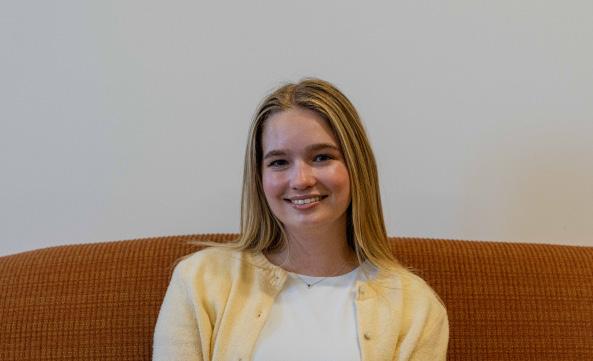
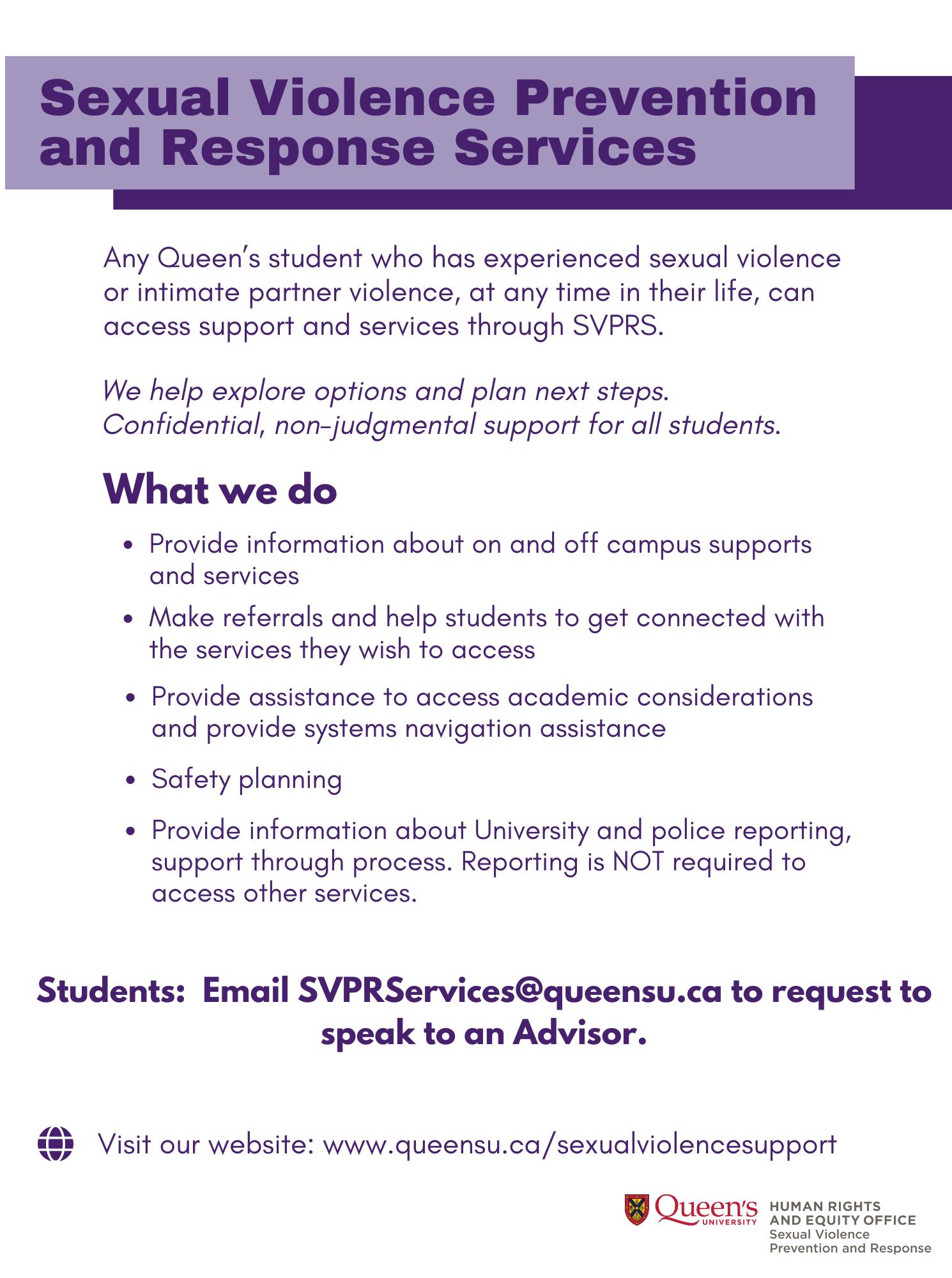
BAK
PHOTO BY JASHAN DUA

RectoR’s Digest: A Duty to cARRy
Guidelines for respectful engagement
Niki Boytchuk-hale Staff writer
Since 2021, Canada has officially observed Sept. 30 as the National Day for Truth and Reconciliation (NDTR). By now, you may have built up associations with the day—banks are closed, orange shirts surface everywhere, and class schedules are suspended.
This year, I hope you dig a little deeper. Explore the Indigenous art show at Union Gallery. Stand together at the community-wide Sacred Fire. Let yourself feel the responsibility of allyship not as a checklist, but as a way of being.
I think of reconciliation as a muscle we’re all growing. There can be no finality because once we neglect it, the muscle weakens. But the good thing is, if you’ve forgotten about this work, you can always begin again.
Continued online at www.queensjournal.ca.
Too Little Too Late: Canada recognizes Palestinian Statehood
Canada’s nod to Palestine feels more like hindsight
keira
SpurNell Contributor
Canada's falling on the International stage, despite the positives.
On Sept. 21, Prime Minister Mark Carney announced that Canada would formally recognize the State of Palestine. In his statement, Carney said the decision was “an affirmation of Canada’s long-standing support for a two-state solution, grounded in peace, security, and mutual recognition.” He argued Palestinian statehood was essential for “lasting peace in the region,” with the requirement that Hamas disarm, and democratic reforms take place in Palestine. The statement uses the diplomatic style of wording that Canada has long favoured: measured, conditional, and cautious. But this recognition comes after decades of delay, and after one of the worst humanitarian crises in recent memory has devastated Gaza. As a politics student and as a human being, I can’t
help but see this moment as precisely what it is: too little, too late.
To understand why timing matters, you have to confront the current reality in Gaza. According to the United Nations’ (UN) Office for the Coordination of Humanitarian Affairs (OCHA), more than 90 per cent of Gaza’s population has been displaced over the past year, many multiple times. Families shelter in rubble or overcrowded UN schools, only to face bombardment there as well.
The UN Relief and Works Agency (UNRWA) has documented disturbing levels of malnutrition in Palestine, with 18.5 per cent in Gaza City alone as of August, as food insecurity has become outright famine in some areas. Over 845 people have been killed inside UNRWA-run schools and shelters, places meant to be safe. UNRWA CommissionerGeneral Philippe Lazzarini has called the situation “a stain on our collective humanity.”
Even the act of receiving aid has become deadly. In July, the UN Human Rights Office reported that 798 people were killed while lining up at food distribution sites, an unthinkable act that has
become normalized during the current blockade.
One UN investigator said this situation was “humanitarian assistance weaponized.”
The toll extends beyond hunger. Gaza’s healthcare system has collapsed under siege. According to the World Health Organization (WHO), fewer than 30 per cent of hospitals remain partially functional, with no access to critical supplies like anesthesia or dialysis equipment. Doctors perform amputations without painkillers. Meanwhile, power outages and fuel shortages have left incubators, water pumps, and refrigeration units useless.
In short, recognition of Palestinian statehood might be diplomatically significant, but it doesn’t fill a child’s stomach or keep the lights on in a neonatal ward. It doesn’t rebuild bombed apartment blocks or bring back thousands of dead men, women, and children.
Let me be clear: I don’t want to dismiss Canada’s recognition of Palestinian statehood entirely. Symbolism has power. Canada’s decision will shift the government’s view of the conflict: Palestinians have become a political entity with legitimate claims. That matters. It also places Canada in line with the 143 UN
member states that voted in favour of Palestinian statehood in May 2024 at the General Assembly (UNGA, 2024). As of September 23, 2025, over a year after this General Assembly vote, the State of Palestine is recognized as a sovereign nation by 157 UN member states, representing 81 per cent of members.
International law is also reshaped by recognition. Canada’s position now strengthens Palestine’s ability to press claims in international platforms, such as the International Criminal Court (ICC). With this recognition of Palestinian statehood by Parliament, the current conflict must now be viewed as a war of two states, with one having invaded and occupied the other. As Open Canada states, there should be no difference in the treatment of the annexation of the West Bank by Israel and Crimea by Russia. But symbolism can’t stand alone. Recognition without followthrough does nothing. It risks becoming the political equivalent of “thoughts and prayers,” making us feel virtuous while changing nothing on the ground.
Continued online at www.queensjournal.ca
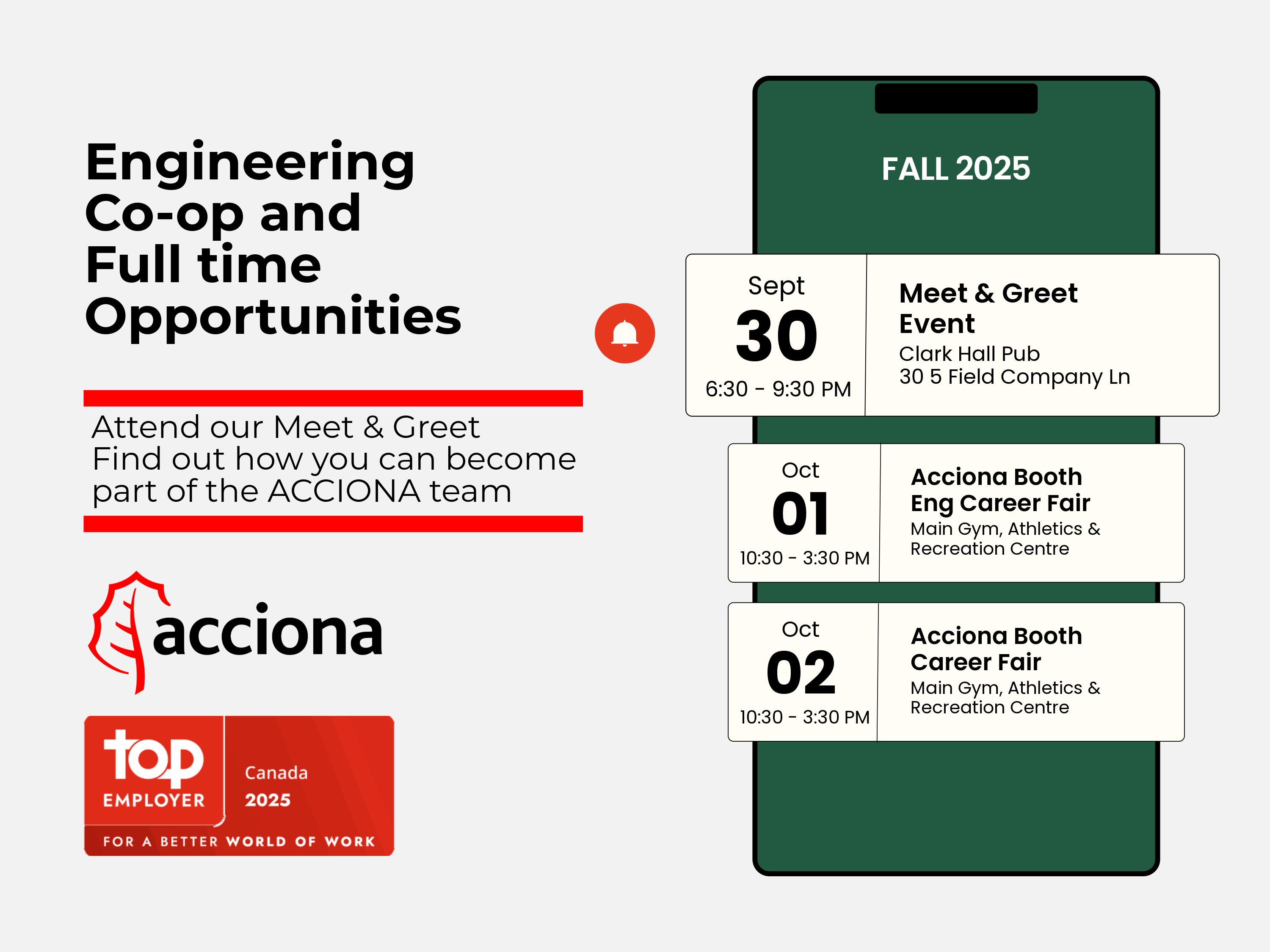
<BIZ-SCI-TECH>
Ford promises to keep pets out of labs
Ford’s proposed pet testing ban oversimplifies ethical debate, expert warns
katarina krivokapić
Business, Science & Technology Editor
Ontario cats and dogs may soon be off-limits to science.
Ontario Premier Doug Ford proposed banning scientific testing on pets, a move supported by many pet owners in the province. The proposal, announced on Aug. 25, would outlaw the use of dogs and cats in research.
Ford defended the plan by calling pets “family members,” appealing to the close personal bond many people share with their animals.
Queen’s Professor of Philosophy and Ontario Research Chair in Bioethics at Queen’s, Udo Schüklenk, cautioned that the proposal risks oversimplifying a complex ethical and scientific issue.
“Justice fundamentally requires us to treat equal things equally,” he said in an interview with The Journal. “If we decide that pain matters in our lives, then we should also be concerned about other beings with the same capacity
to feel pain.”
Schüklenk pointed out that protections limited to cats and dogs fail to account for the suffering of other animals widely used in research, such as rodents and fish.
“We have no good justification for subjecting animals to pain any more than we could subject you or me to pain without consent,” he said.
Schüklenk also identified inconsistencies in Ontario’s other animal policies, such as regulations which permit dogs to be used in hunting training exercises against coyotes. “There’s no difference in terms of development or dispositional capacities between a coyote and a dog,” Schüklenk explained. “They’re the same.”
Animal testing has long had an important role in medical discovery and innovation. In the 1920s, researchers at the University of Toronto developed insulin through experiments on dogs, and the polio vaccine, credited with protecting
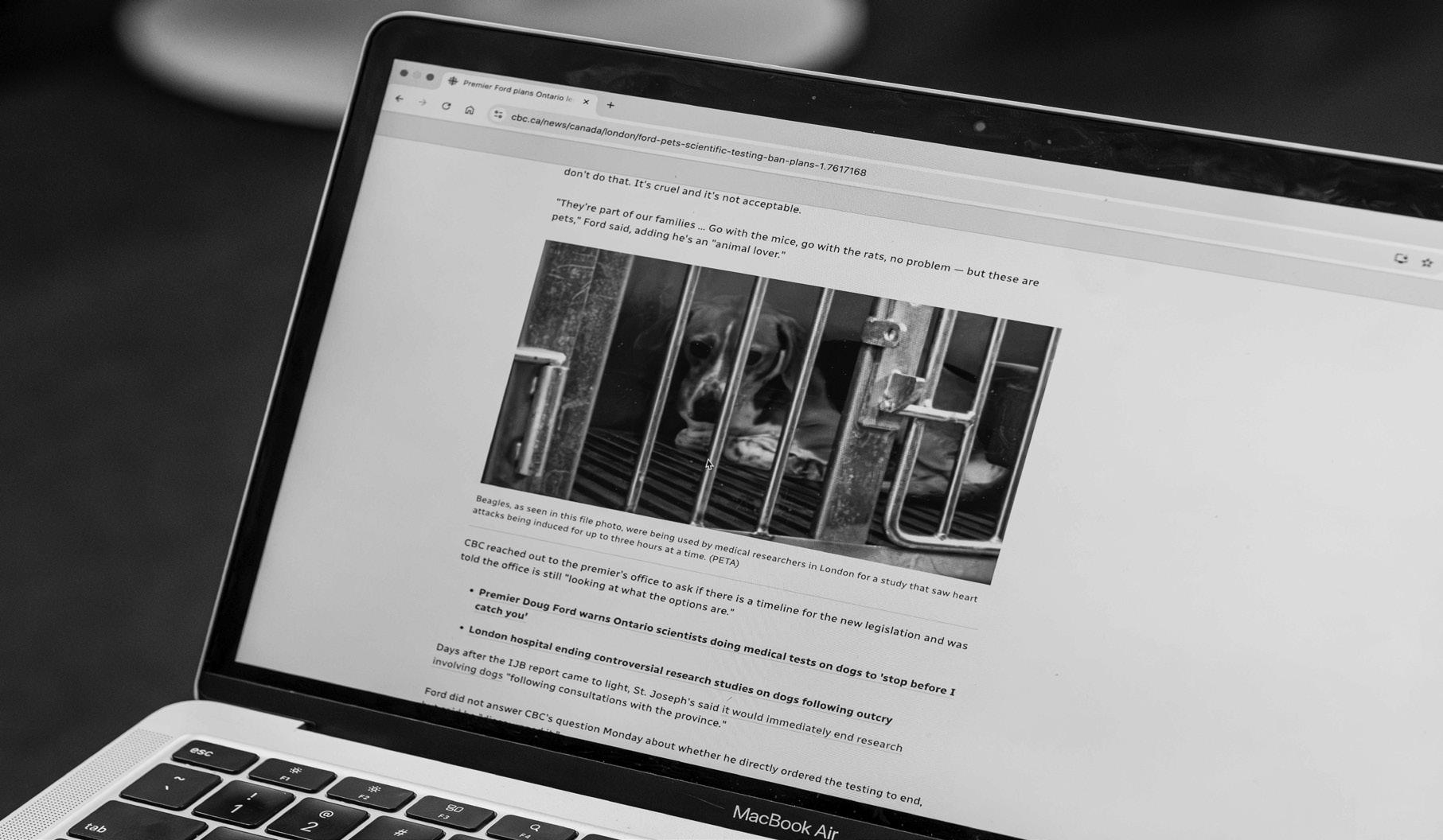
generations of children from a lifetime of paralysis, was tested on rabbits. The same process continues today, as vaccines, chemotherapy drugs, and antibiotics undergo animal trials before advancing to human studies.
“Many important benefits have been derived from animal research,” Schüklenk said. “Without animal experiments, it’s unlikely people would volunteer to take on such high risks.”
Ford’s proposed ban could also negatively affect other animals. Schüklenk warned that outlawing pet testing in Ontario wouldn’t necessarily reduce the overall number of animals used worldwide.
“Prohibiting animal research
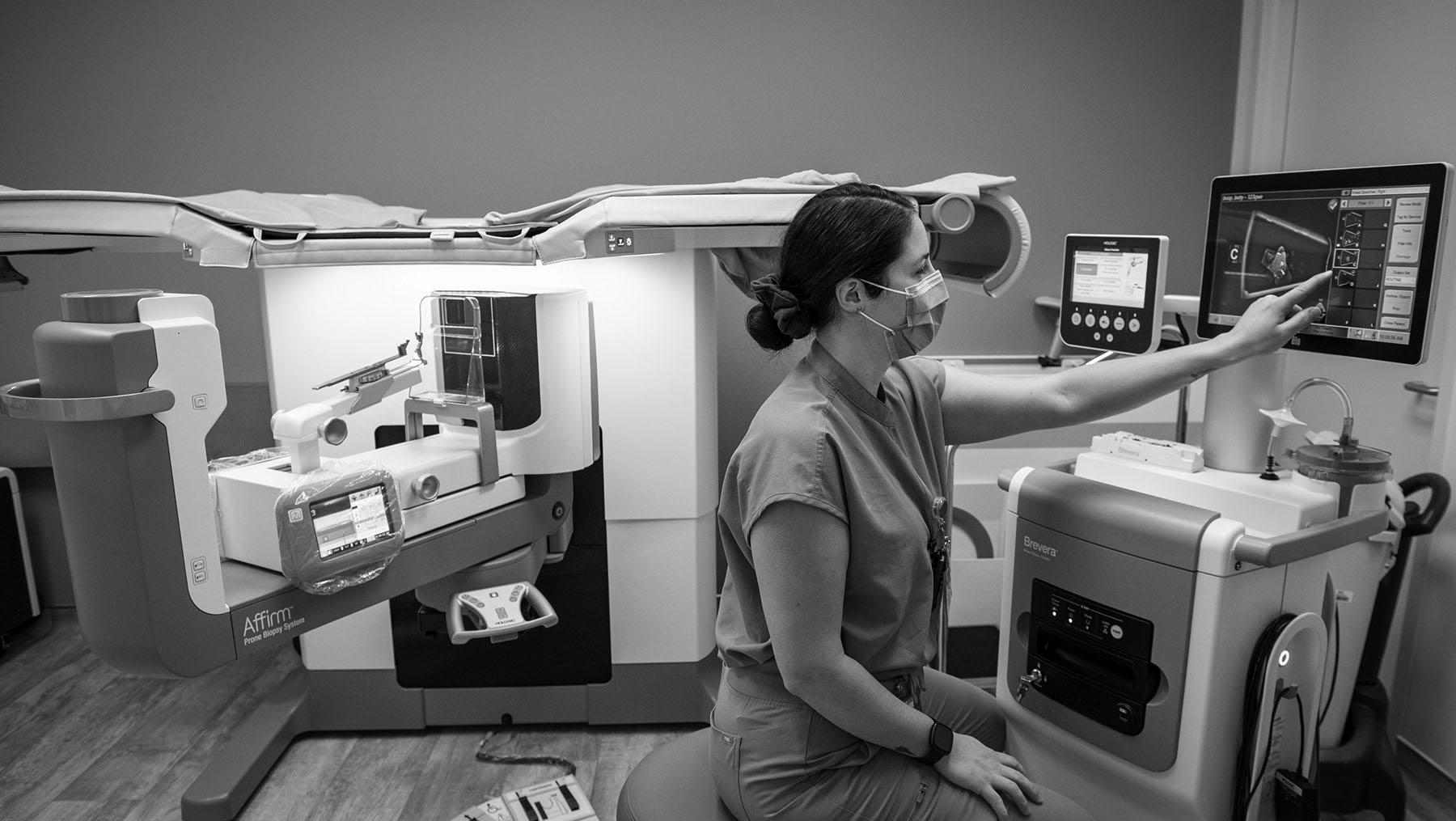
KHSC
to be among first in Ontario with cutting-edge cancer
care
MOLLI brings innovative breast cancer treatment closer to home
Ananya Sharma Business, Science & Technology Editor
KHSC’s MOLLI sets a new standard for precise, less invasive cancer care.
On Sept. 15, Kingston Health Sciences Centre (KHSC) announced the acquisition of MOLLI Surgical online, a magnetic seed marker system, which promises to replace the uncomfortable traditional wire-based system with greater precision, comfort, and fewer repeat surgeries for breast cancer patients in Kingston.
Local philanthropist and resident Stephen Sorensen donated $175,000 through the University Hospitals Kingston Foundation to support the acquisition. KHSC is currently in the process of obtaining the technology, and MOLLI is expected to be available to all breast cancer patients by the end of the year.
Initially, MOLLI Surgical was developed at Sunnybrook Research Institute by a team of researchers led by Dr. Nicole Look Hong, BScH ‘00, and Dr. Ananth Ravi, and has been nationally
and internationally recognized as one of TIME Magazine’s Best Inventions of 2022.
MOLLI is innovative in the way it tackles the shortcomings of the traditional techniques used by radiologists and surgeons today.
MOLLI has two components: A magnetic, metallic gold seed, called the MOLLI Marker, that is 3.2 mm in length. Since it is chemically inert, it can stay in the body for up to 30 days before the surgery, which allows the imaging process to happen in an outpatient. The second component is the
on pets doesn’t achieve much, because research will simply move elsewhere,”he said.
“Another possibility, which I find really disturbing, is that animals not included in the ‘pet’ category could be used instead. Research on non-human primates could increase, which I find far more ethically problematic than research on cats or dogs.”
For Schüklenk, the issue isn’t whether animal research should continue, but how it can be conducted responsibly.
“While we can’t yet replace animals in research, we should minimize their use as much as possible,” he said. This aligns with the internationally recognized
MOLLI OncoPen, which essentially ‘activates’ the magnetic seed.
The Marker stays at Breast Imaging Kingston, where the radiologists are, while the OncoPen stays in the operating room, where the surgeons are.
In an interview with The Journal, Department Head of Diagnostic Radiology at both KHSC and Queen’s, Dr. Omar Islam, shared his insight on the typical breast cancer treatment procedure.
“Women who have a breast lump discovered end up having a biopsy at Breast Imaging Kingston Centre, and if that biopsy is positive, then the next step is a surgical referral,” he said. “The most common treatment is surgical removal of the lump. The lump, which can be deep in the breast sometimes, requires us to localize the lesion very accurately.”
According to Dr. Islam, there are two traditional methods used to localize the tumour within the breast tissue. “Traditionally, the patients have a wire placed in their breast to localize the lesion. Wires, as you can imagine, aren’t as eloquent and aren’t as precise as putting this 3 mm seed [MOLLI Marker] right into where the lesion is.”
He added that often, this process is painful and can be restrictive for patients. It also requires the patient to head into surgery right after localization, since the wires stick out of the breast tissue post-biopsy.
3Rs framework in research ethics: replace animals where possible, reduce the number used, and refine methods to minimize suffering.
As the proposal develops, Ontario faces a difficult balance between compassion for animals and recognition of the human health advances that animal research has enabled. Schüklenk warns that Ford’s proposal may fail to address either concern.
The other involves placing a radiation seed, usually containing radioactive isotopes of elements such as iodine or palladium, in the lesion. Dr. Islam noted that transporting a patient from Breast Imaging Kingston, where the imaging and localization are done, to Hotel Dieu Hospital, where the surgery takes place, becomes more complicated in the presence of a radiation seed.
Dr. Islam suggests that MOLLI is a significant step forward when it comes to breast cancer treatment in terms of both improved patient care and better surgical outcomes.
“With MOLLI, the seed is completely inactive; it’s benign. It doesn’t cause any issues or pain to the patient; it does not emit any radiation and can be put in well before the surgery, which means that patients don’t have to immediately come in for the operation.”
He echoed the ease of use for surgical oncologists. “It allows us to get really close to the lesion and provides a much better opportunity to get near margins, which means no residual tumour is left behind.”
As KHSC positions itself as one of the fastest-growing robotic surgical centres in Canada, MOLLI could become a benchmark for what modern cancer treatment can be: precise, more comfortable, and less invasive.
Ford’s promise to ban pets questioned by Queen’s bioethics expert
PHOTO BY JASHAN DUA
KHSC welcomes MOLLI as a new breast cancer treatment tool.
IMAGE SUPPLIED BY KHSC
SPORTS
Gaels football looking to build off momentum against York
Queen’s seek to continue winning streak and earn first win at home
Noah Cyr Assistant Sports Editor
The Gaels football team are looking to keep the good times rolling, as they aim to bring the fun to Kingston this weekend.
Queen’s men’s football is set to host the York University Lions on Sept. 27 at 3 p.m. ET. The Lions are 2-2, coming off a high-scoring loss at home to the Carleton Ravens, and will be hungry coming to Richardson Stadium, hoping to get back in the win column.
The Gaels come into this matchup riding a high, having won back-toback games on the road, both by sizeable margins. They’ve now come back home, looking for their first win on their own turf this season. Queen’s will have to do so without their leading tackler Justin Pace, ArtSci ’26, who’ll be serving a one-game suspension following a hard collision with Waterloo Warriors quarterback Nick Orr.
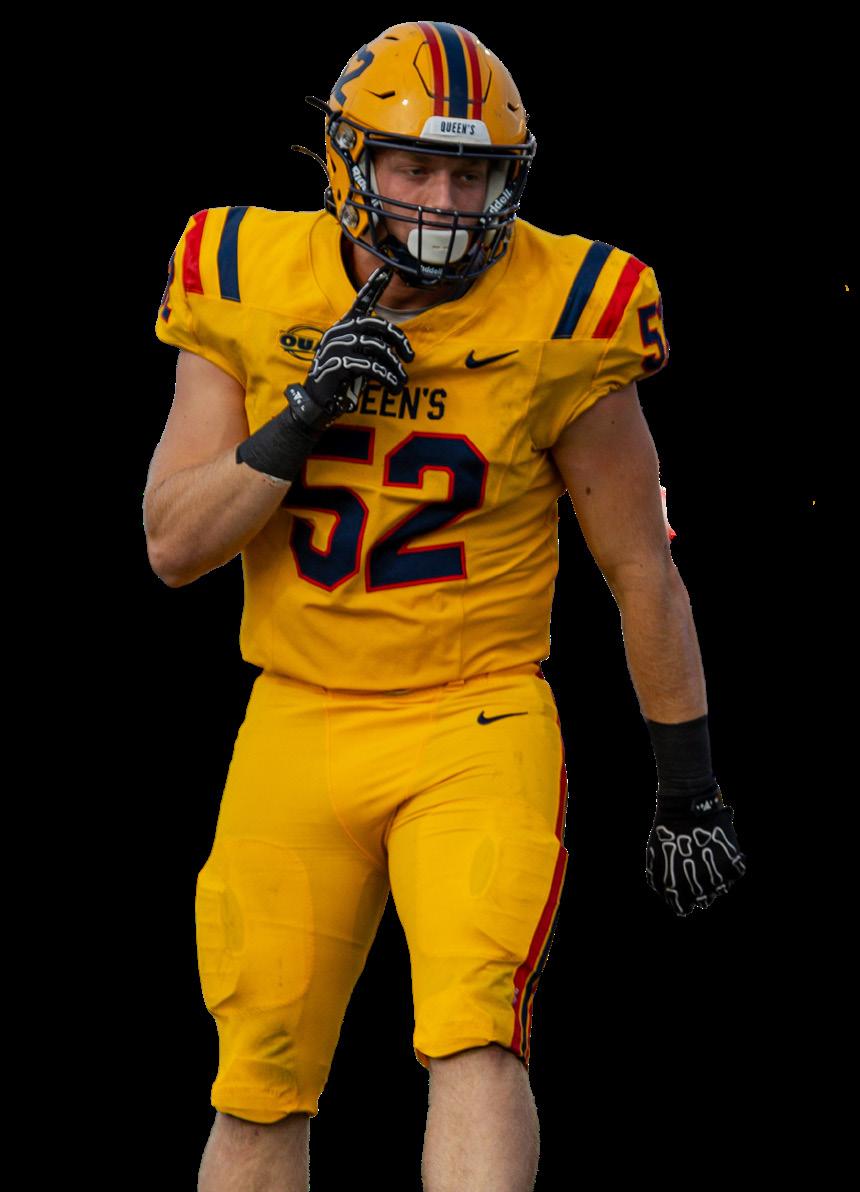
improvement that our players have intent to stick to the plan.” The Gaels come into this game as the 8th best team in the country, according to the U SPORTS Rankings as of Sept. 22.
In the same media availability, Ashton Miller-Melancon, ArtSci ’26, reiterated Snyder’s thoughts going into the game against York. “It really comes down to us being locked in on our preparation and doing our job out there,” said Miller-Melancon.
When asked about dealing with hardship, such as Pace’s suspension this week, Miller-Melancon expressed gratitude for having so many veterans on the defense.
“We’ve a lot of fifth-year guys that have experienced a lot, that can help us stay steady and translate to the rest of the team.”
‘Voices must be heard year-round,’ VLC president says
Sarah adamS Editor in Chief
As the National Day for Truth and Reconciliation (NDTR) approaches, the Queen’s Varsity Leadership Council (VLC) reflected on their role in advancing reconciliation in sport.
Since 2015, the Government of Canada has been working to implement the Truth and Reconciliation Commission’s Calls to Action related to sport (87–91). From Sept. 20 to 28, OUA marked Anti-Racism Week under the theme ‘We Are One’ highlighting ongoing efforts to address inequities within athletics. In line with these initiatives, The Journal spoke with VLC Co-President Chris Zimmerman about how Queen’s athletes are approaching reconciliation ahead of the NDTR.
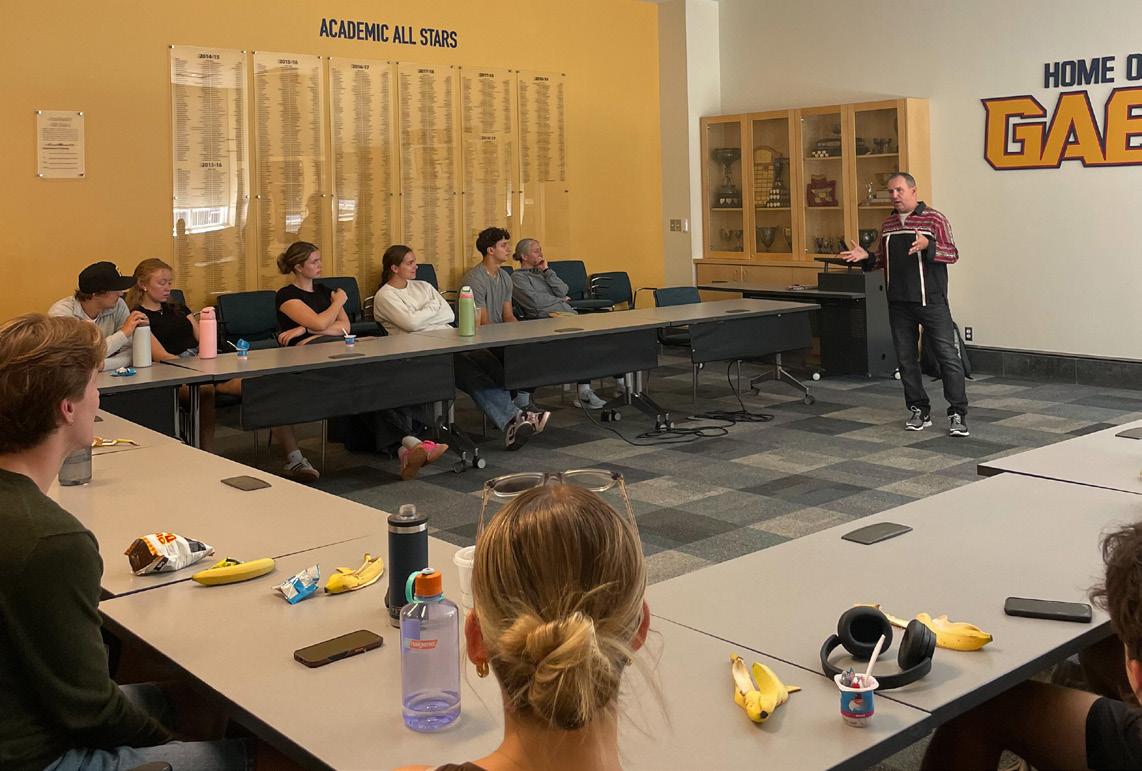
growing up in Prince George, a small town in northern British Columbia which he explains has a significant Indigenous population.
Nonetheless, the Gaels are focusing on the task at hand this week, which is the matchup against the York Lions. In a media availability, Head Coach Steve Snyder underlined the importance of respecting your opponent every week. “We’ve the utmost respect for the York coaching staff, who have recruited some talented players” Snyder said.
However, Snyder shifted the focus saying that his football team has a “major focus on progression and incremental
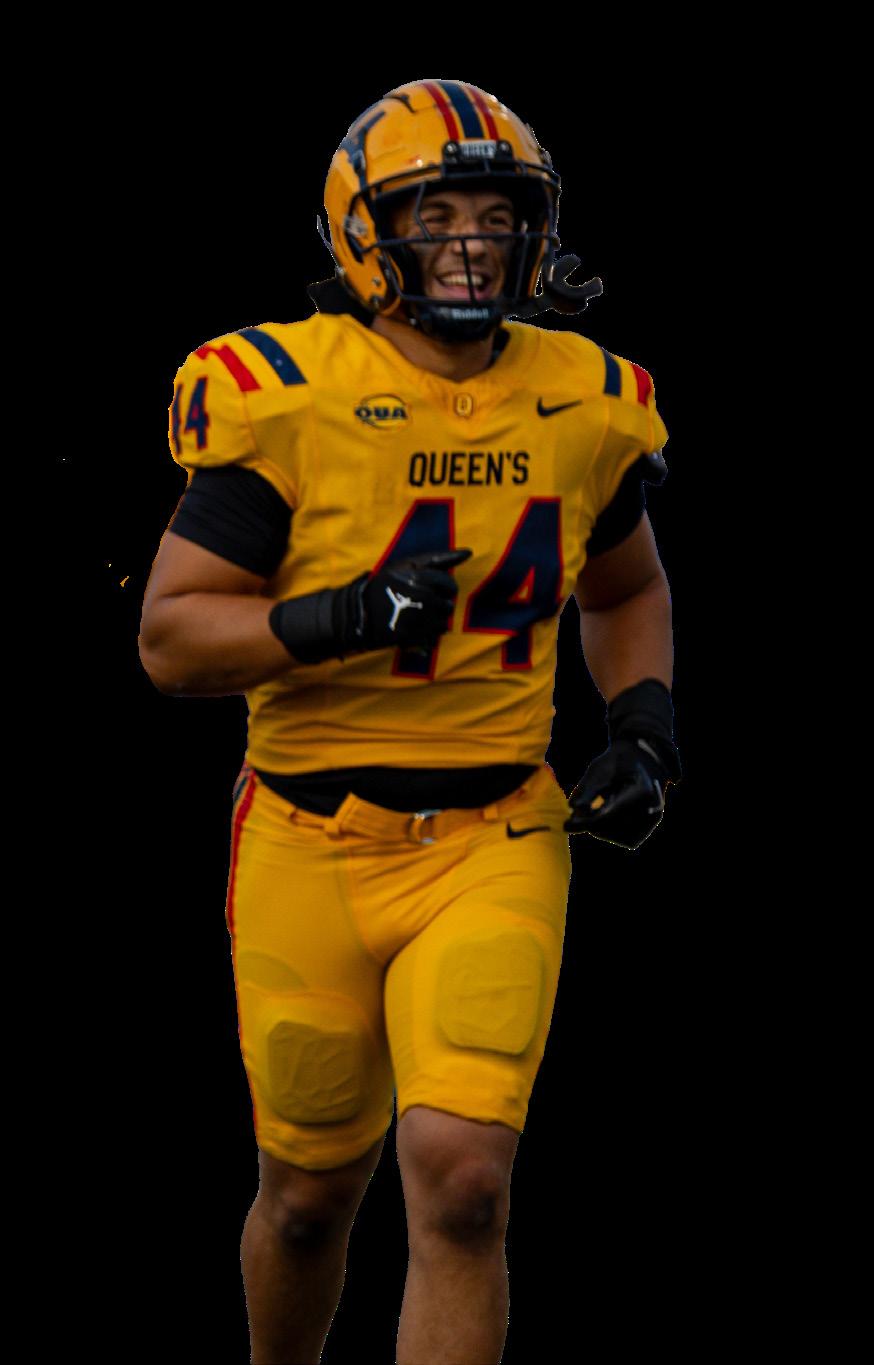
Both the Queen’s offense and defense will have their hands full, with York quarterback Keagan Hall ranking third in the OUA in completion percentage and his offense scoring the fifth most points per game in the OUA. Queen’s offense ranks second in Ontario in points per game, whereas York has allowed 143 points over four games, putting them fifth last in the OUA. The Gaels will look to improve on their winning streak and keep the momentum going as playoffs loom in the distance.
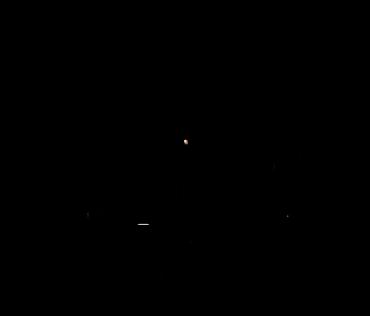
On Sept. 24 from 12 p.m.1 p.m., student athletes had an open-invite to attend a Lunch & Learn which aimed to connect reconciliation efforts directly to athletics with Jamie McCourt, coach of the 2014 North American Indigenous Games, and conductor of summer camps with the Tyendinaga community. According to Zimmerman, around 35 student-athletes attended the Lunch & Learn.
“We got in touch with [McCourt] because the women’s basketball team works at this summer camp that he puts on,” Zimmerman said. He explained that this year, the VLC wanted a more interactive and connected to sports speaker, that could help provide athletes with information on how they can contribute to reconciliation from an Indigenous member of the sports community.
During the event, the main focus of discussion was each athlete sharing their personal connection to and first memories of sport.
“This is something [McCourt] really works to do in his community, is give kids, especially Indigenous youth, a positive first experience with sport which directly ties into the Calls to Action,” Zimmerman said.
For Zimmerman, the importance of reconciliation work in athletics is rooted in his own experience
“I’ve worked for Engage for Work, which is a non-profit, and that’s a lot of the work that we do—finding ways to provide resources by going into schools,” Zimmerman said. “We do free summer programming, and it’s about being present in the community in a place you can just walk to.” Zimmerman described the importance of breaking down barriers to access sport for children who may not otherwise have access. “We’d advertise at elementary schools or walk around neighbourhoods and knock on doors and say, ‘Hey, next Wednesday, we’re going to be at this park if you want to play some sports, just try it,’” he said. “Providing these things without any barriers is so important—and people come. Kids want to do that stuff. It’s just about giving them the opportunity.”
At Queen’s, Zimmerman acknowledges that conversations about representation and inclusion can be difficult. “I mean, as you know, Queen’s is a pretty white school, and I think it’s always a struggle for us to even think about these things and figure out how to have representation in the right ways,” he said. “You don’t want to do things performatively, and I think something that Queen’s and the OUA as a whole does is some performative allyship. I always hope for more inclusion of those voices.”
He said having Indigenous voices like speaker McCourt in sports programming is essential.
“Having Jamie there today is so important to us because it’s not like we’re getting a lecture from
just anyone—it’s someone who’s working in Indigenous sport,” Zimmerman said. “It would be cool to see the OUA include more of those voices. I know they did a lot of work on their strategic plan in the last couple of years, but making sure voices are present not just around Sept. 30, but all year, is something we should be thinking about all the time.”
Zimmerman said the VLC’s focus on reconciliation is a relatively new development. “I’ve been on the [VLC] executive for the past two years, and before that I was just a general rep, and I don’t remember anything like this happening even two years ago,” he said. “Last year, I was the Vice-President of Community Outreach, so I coordinated last year’s event, and it was really important to me because my assistant coach is Métis and our team does a ton of work around reconciliation.”
He added that efforts are now more sustained and intentional. “We actually do this kind of work all year too—it’s not just a September thing,” he said. “It was really important to me to have this be at the forefront of the VLC’s work. And I think that it’s now a reason that’s pre-existing. We’ve got it in our transition manuals, like, ‘Okay, these are the contacts, these are the people to reach out to.’”
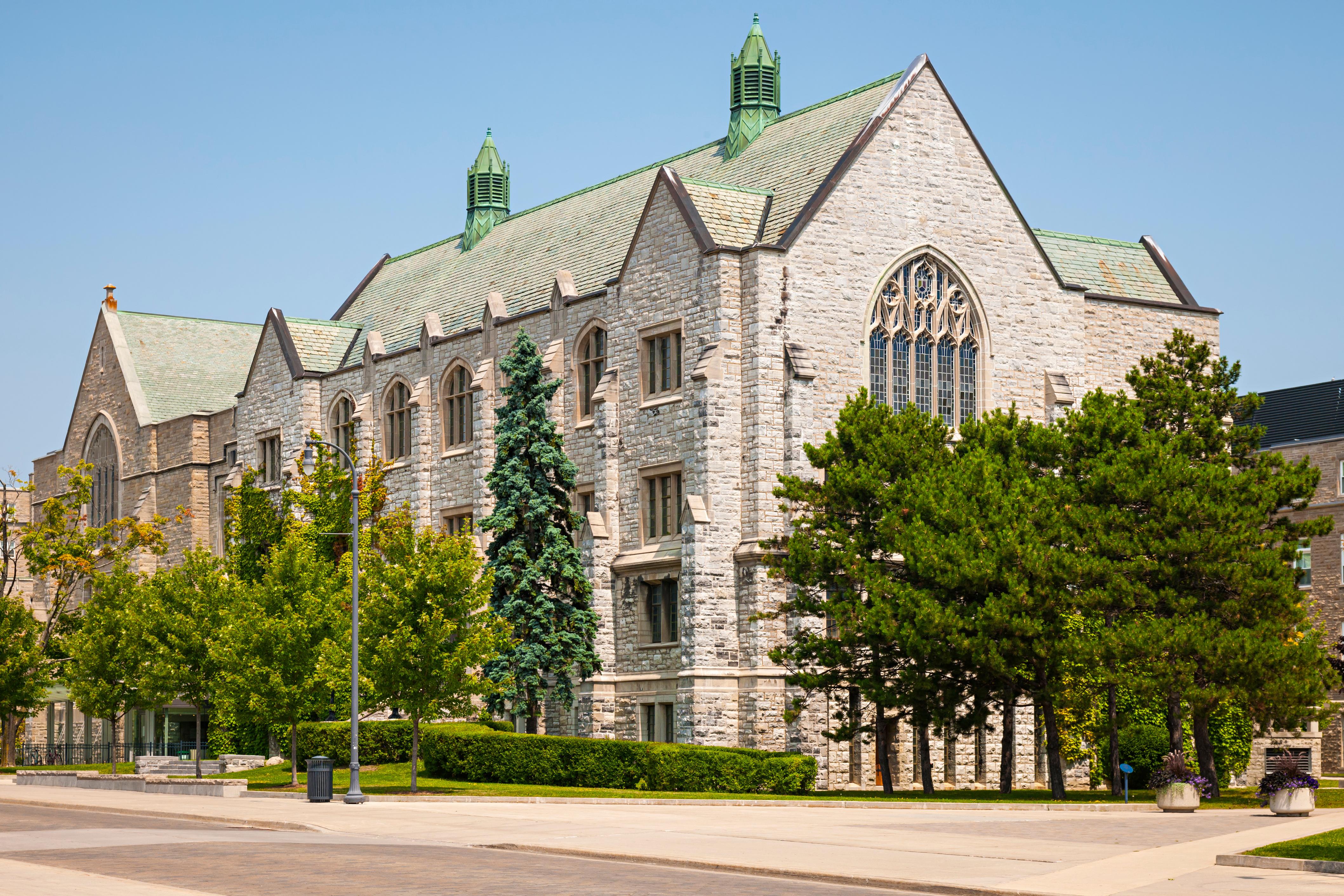
Zimmerman hopes more teams will follow the lead of women’s basketball in engaging directly with communities. “I’d love to see more teams doing what women’s basketball does—helping with camps, going into the community,” he said.
On Sept. 30, Zimmerman says students should watch for the release of a video collaboration with the SHIFT Project, and notes that athletes will take part in the Sacred Fire at 1:00 p.m. to 2:30 p.m.
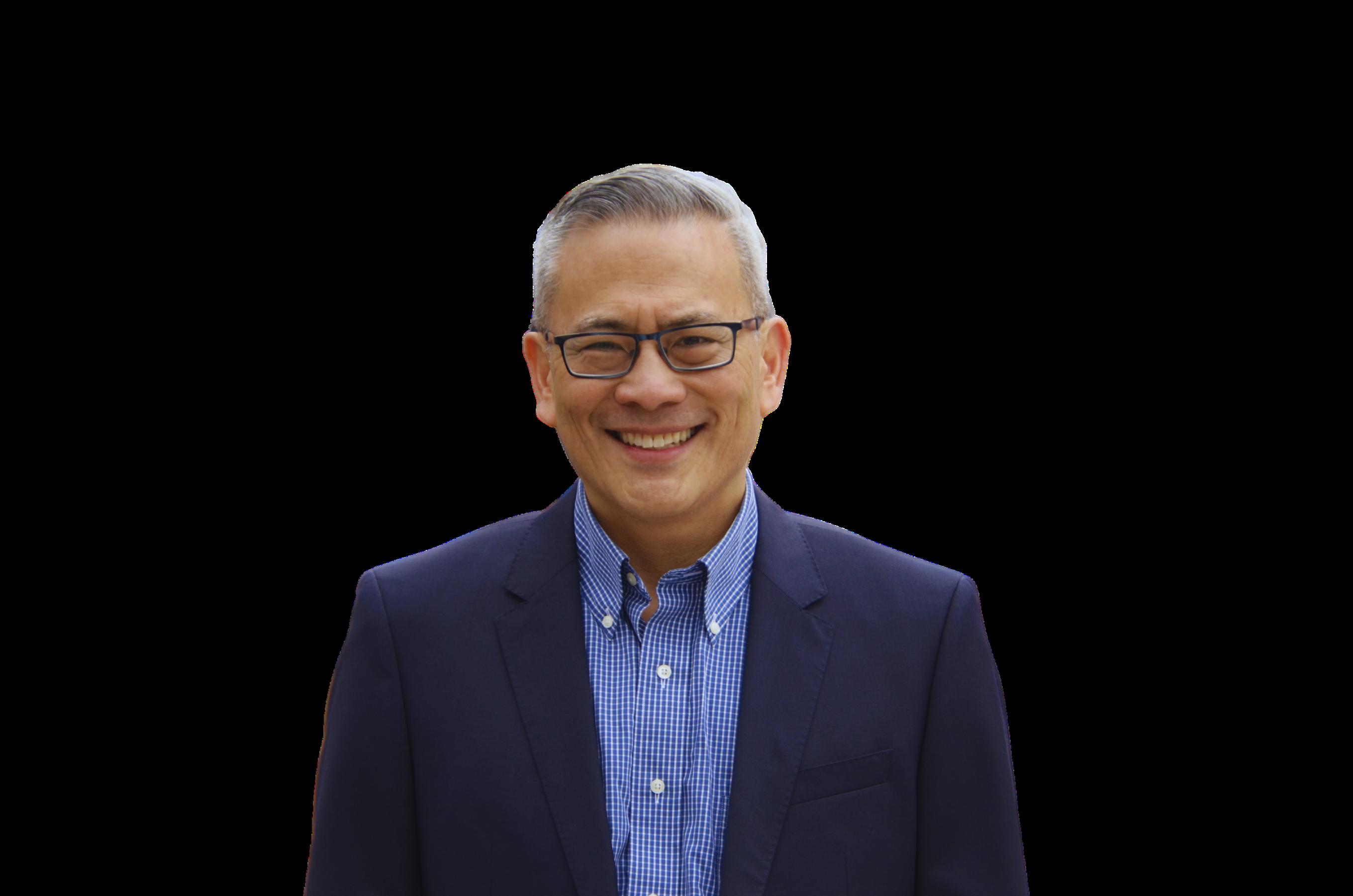
Lunch and Learn took place on Sept. 24. PHOTO SUPPLIED BY HOLLY BIASI

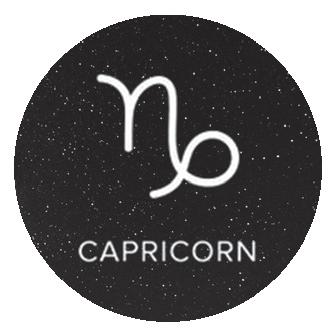
Capricorn (Dec 22- Jan 19)
You’re starting to unravel over something that isn’t worth it. Don’t pick too many threads in case you tear your whole life apart. Take a deep breath and a step back. Sometimes, it’s healthiest to let things go.

Gemini (May 21- Jun 20)
Someone is trying to provoke you. Their efforts are consistent but mild, aiming to get under your skin without you noticing. Figure out who they are and cut them out of your life before they can do any more damage.
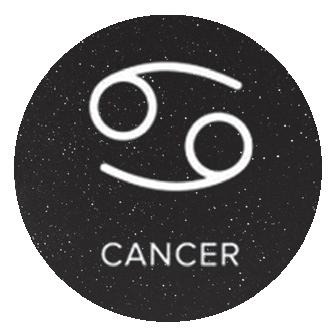
Cancer (Jun 21- Jul 21)
As a cardinal sign, you don’t bow to anyone. Consider the ways other peoples’ expectations may be shaping your current decisions; it’s time for a change. Follow your gut.

You’ve

Virgo (Aug 23- Sept 22)
It’s okay to play innocent now and then. You don’t need to be totally honest about your motivations and intentions, especially if you’ve bent the rules to get what you needed. You’re generally very honest; it’s ok to put your interests first sometimes.
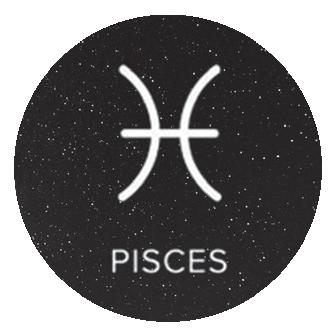




HOROSCOPES




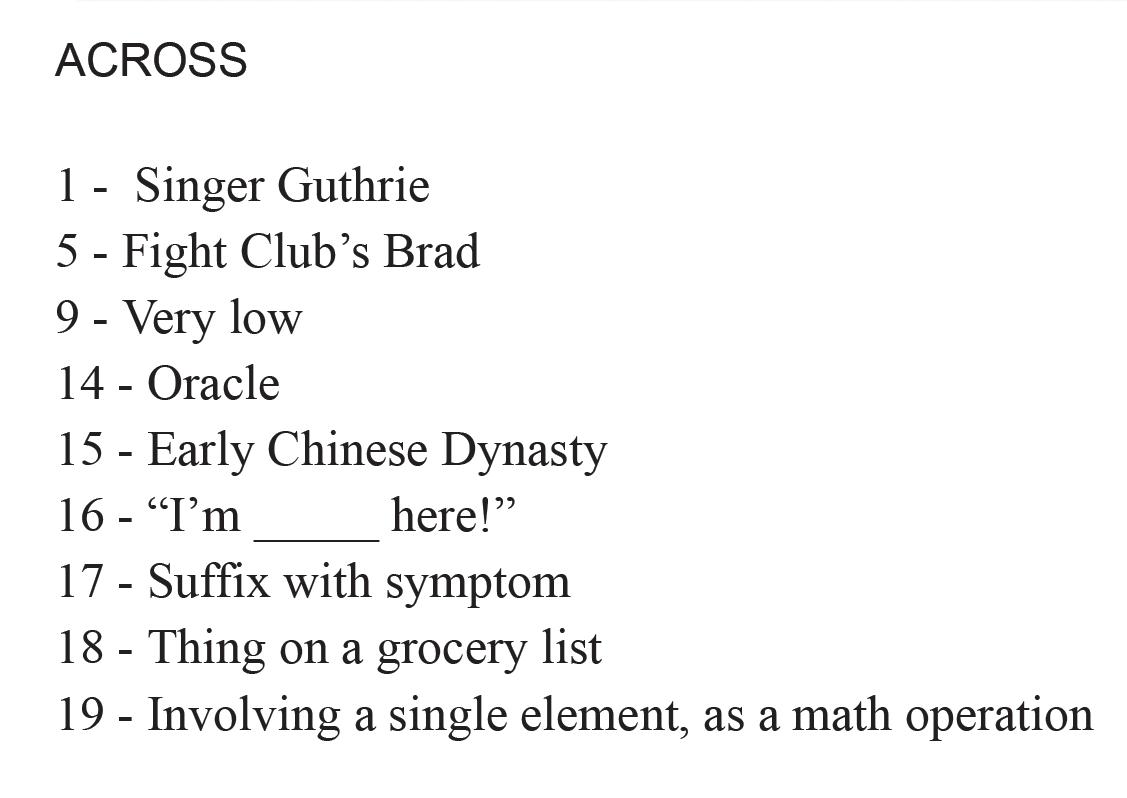
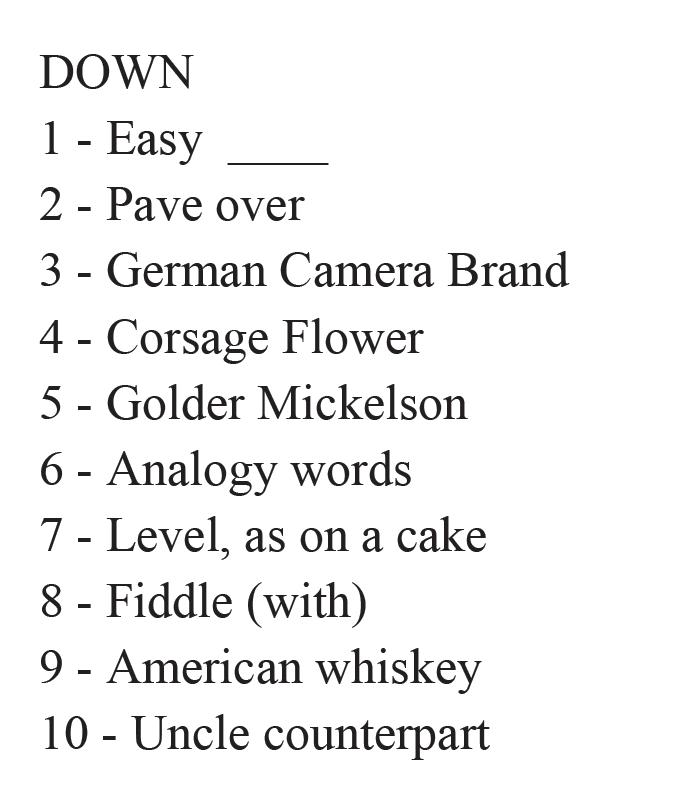
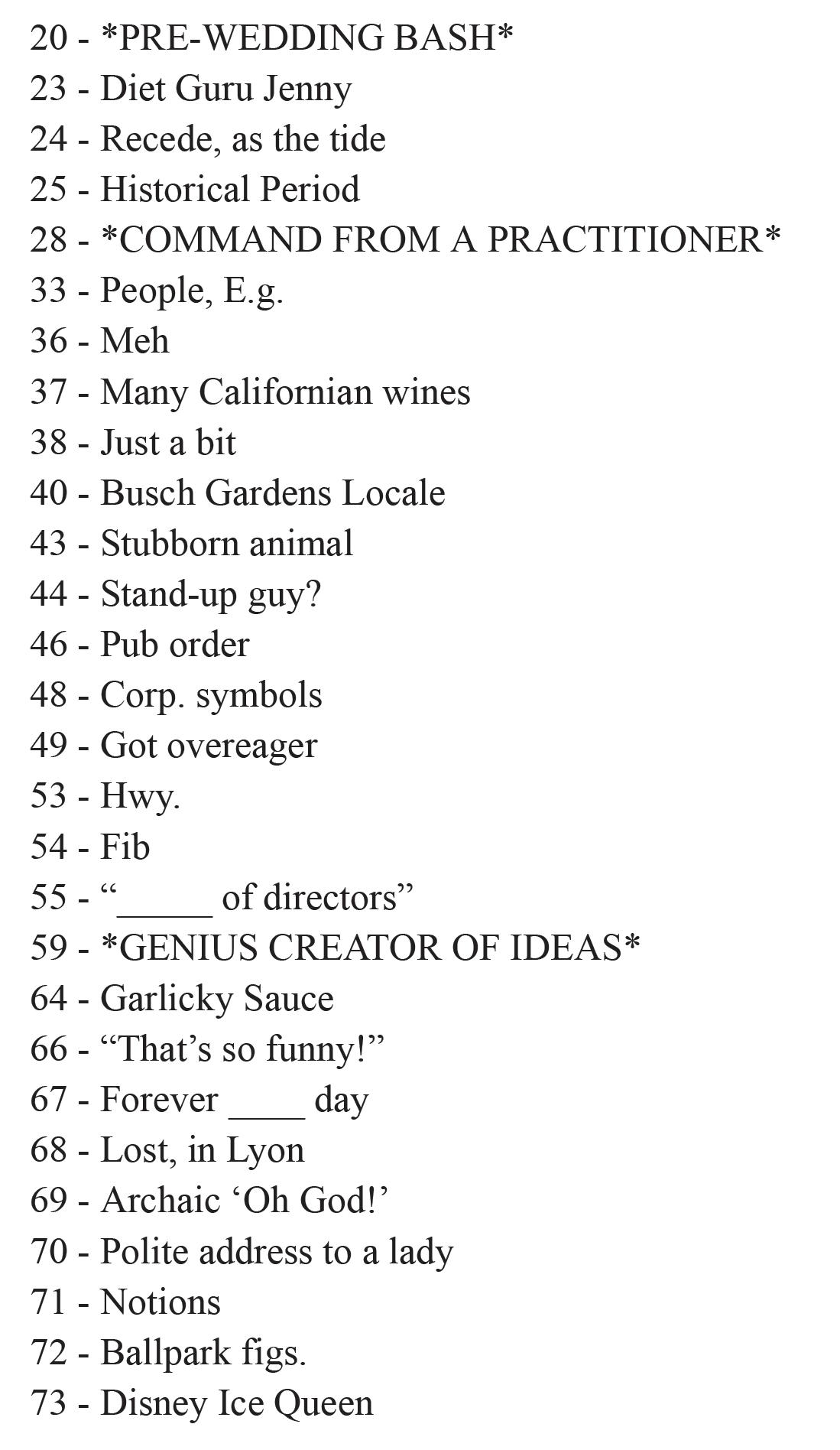
Pisces (Feb 19- Mar 20)
You need to forgive and forget, Pisces. Though you like to be discerning about the people you surround yourself with, sometimes you need to accept others’ faults to get along with them. You can’t run away from every problem.




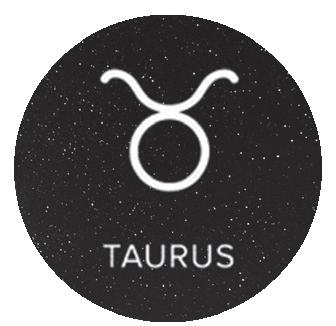
Taurus (Apr 20- May 20)
A sudden calm in your life makes this a crucial time to repair something that’s broken—a relationship, a habit, or even something around your home space.

Aries (Mar 21- Apr 19)
The spark of inspiration has been flickering around you lately. As we head into the chilly winter months, take advantage of this drive before it fizzles out. You may feel inspired to work on a creative project or new relationship.
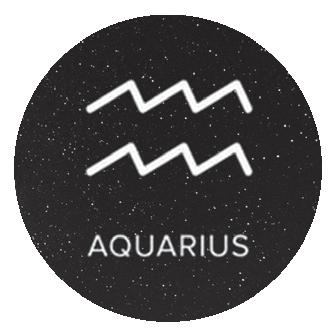
Aquarius (Jan 20- Feb 18)
Don’t wait too long before putting your big plans into action. If you’ve had an idea brewing for a while, there’s no time like the present. Your Aquarius brain can hypothesize for too long without springing to action, stalling your potential.
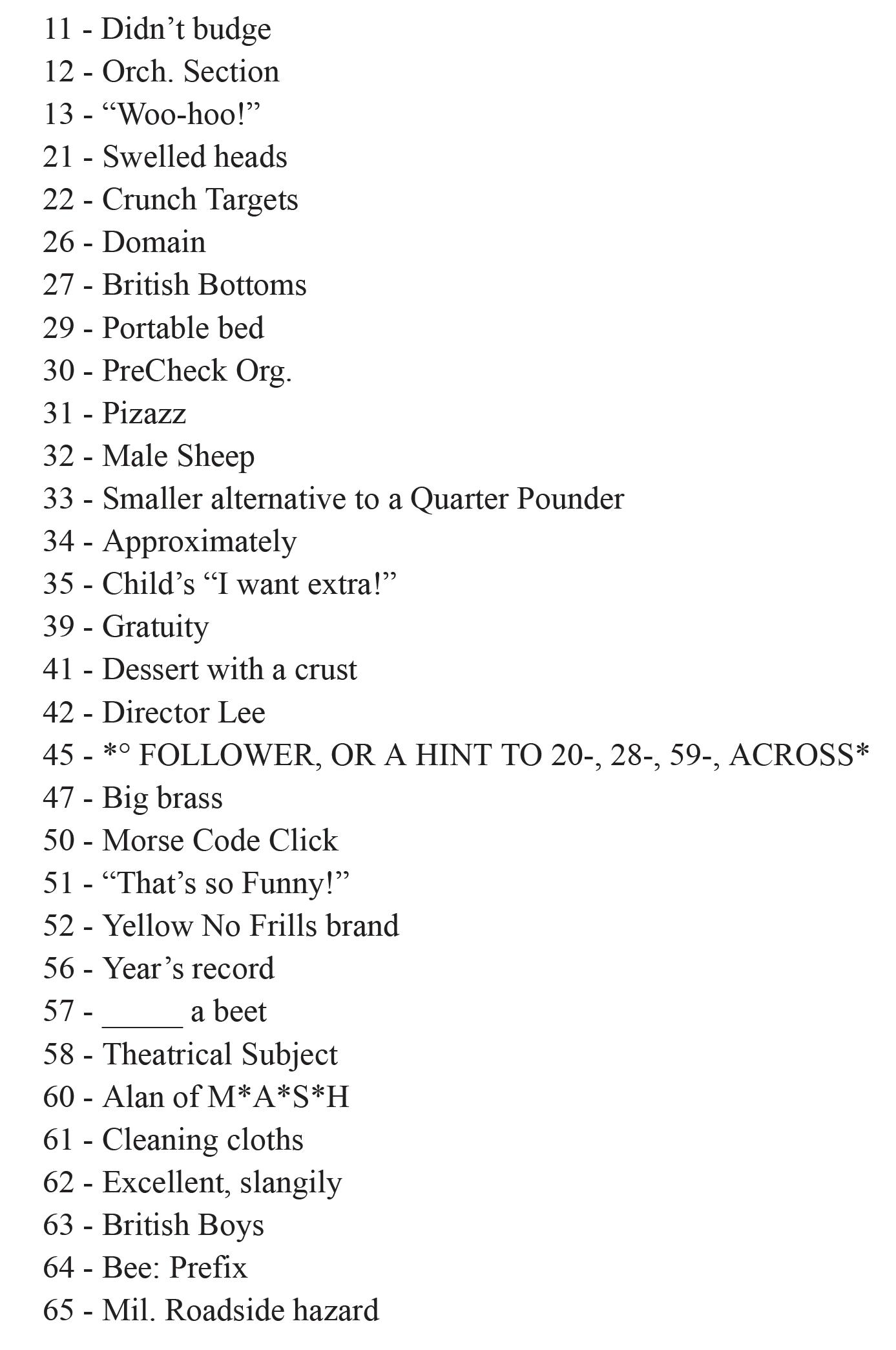



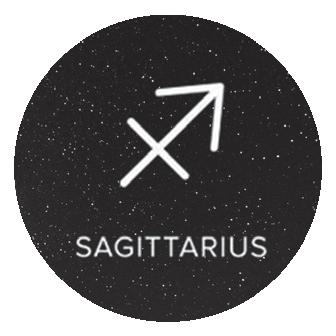
Sagittarius (Nov 22- Dec 21)
Someone else is convinced you have bad intentions and will soon try to retaliate. Identify them and try to mediate the situation before it escalates: this misunderstanding is your fault, and it’s up to you to stop it.
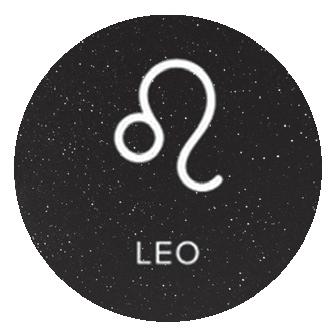
Leo (Jul 23- Aug 22)
Someone is suggesting change: be it career, study, or friendship. Be wary of advice from people you aren’t certain have your best interests at heart. They may want what you have.
Libra (Sept 23- Oct 22)
An unexpected amount of money will soon befall you. Spend some portion of this on other people, and your windfall will double. Spend it selfishly, and you will soon regret it.


Scorpio (Oct 23- Nov 22)
entered a bargain, upheld your half, and now the other party is attempting to move the goal posts. Don’t let them; you did what was asked of you, don’t let anyone else get away with shorting you.
ARTS & CULTURE
MUSE Mini Desk showcases young music talent amid technical disaster
performance of songs by
John Mayer and The Beatles.
Despite technical difficulties, six bands still impressed audiences at MUSE’s Mini Desk.
On Sept. 23, MUSE Magazine returned to The Mansion for the fall ’25 edition of its Mini Desk series, bringing together six student and local bands in an intimate show. Inspired by National Public Radio (NPR)’s Tiny Desk, the event has become a staple in Queen’s music scene. This year, musical acts Lee Sadja, Xavier + Noah, Twotime, Revzed, LHRK, and Last Call took to the stage, giving audiences a front-row view of emerging Kingston talent.
However, Queen’s musicians were put to the test by technical difficulties. After being delayed by over half an hour, Lee Sadja, ArtSci ’26, playing his first gig, finally opened the show at 9 p.m. with a solo
“I’m very, very stoked. It’s a pretty big moment for me, honestly,” Sadja said in an interview with The Journal.
The next act, Xaiver + Noah, consisted of Xavier Lauriault, ArtSci ’28 and Noah Wright, Sci ’28. “I like to think of it [performing] as an exam,” Wright said in an interview with The Journal “As long as I prepare beforehand, I feel ready,” he said.
However, nothing could’ve prepared the duo for screeching amps and microphones losing power, which plagued them throughout the set. Despite this, they powered on through an impressive cover of Slaughter Beach, Dog’s “Acolyte” and an original track, “Don’t Call It (Curtains).”
After painful feedback and over an hour in delays, a large part of the crowd began trickling out after Xaiver + Noah’s
set. But those who stayed were in for a treat.
The rock band Twotime took the stage wearing tinfoil hats in a playful nod to TikTok’s recent “rapture” trend. The whole set was fun and upbeat, engaging the crowd after a frustrating start to the evening with popular covers like “Kilby Girl” by The Backseat Lovers.
Bringing a similar upbeat energy was next act, RevZed. Made up of Andrew Nasso, ArtSci ’26, Jack Blurton, CompSci ’26, J.P Ingram, ConEd ’27, Haluka Matsuura, ConEd ’27, and Callan Robinson, Sci ’25, the band drove home excellent covers from bands like the Arctic Monkeys and The Red Hot Chili Peppers.
Even as the Mansion experienced a temporary blackout during RevZed’s cover of “Great Balls of Fire” by Jerry Lee Lewis, the group was unphased, restarting the song with full force once the lights were fixed.
After so many technical issues, the penultimate act, LHRK, hoped to “just come out of [the night] knowing that we did the best we could have done,” said singer Brandon Liang, Sci ’26, in an interview with The Journal. Their rendition of The Cure’s “Just Like Heaven” was a highlight, and their closing cover of Coldplay’s
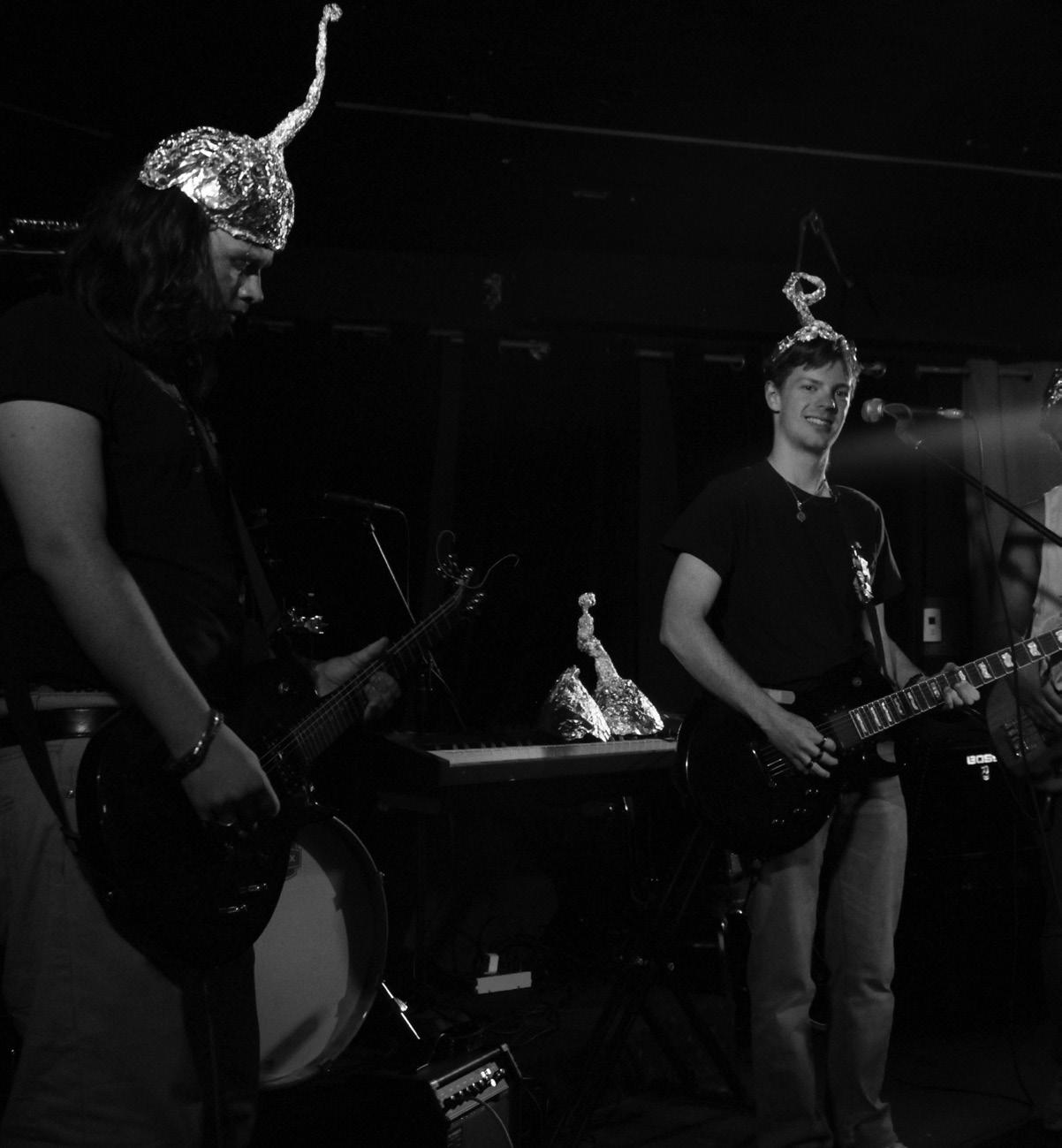
“Yellow” had the crowd swaying and singing along. Last Call took the stage around 12:30 a.m., nearly two hours after their scheduled performance time. The band kept energy high during the set, obliging the cheering crowd’s demands for an encore with a cover of Blondie’s “Call Me.” The impact of technical difficulties on the bands wasn’t lost on organizers. “Obviously, it was frustrating,” MUSE’s Head of Music Kate Bassett, ArtSci ’26, said in an interview with
Award-winning authors discuss new novels at intimate WritersFest event
Marijka Vernooy Senior Arts & Culture Editor
Unconventional novels can have unique histories all their own, according to two prominent Canadian authors.
On Sept. 21, authors Ian Williams and Maria Reva met onstage at the 2025 Kingston WritersFest, discussing the unique approaches to writing fiction in their recent, critically acclaimed
novels. Around 100 people filled the Kingston Marriott’s Limestone Ballroom to listen to the authors speak without a moderator. The authors’ conversation at WritersFest’s “Wild Rides” event reveals the diligent research and profound vulnerability that accompanies unconventional narratives in fiction.
Both authors began by giving some background information
on their new works. You’ve Changed, Williams’ new book, tracks the dissolution of a marriage and the sometimesabsurd shapes a relationship can take. The book was longlisted for the 2025 Giller Prize.
“You’ve Changed is a departure from Reproductions,” Williams said onstage, referencing his 2019 Giller Prize-winning novel.
“I wanted to write something on a small and intimate scale,
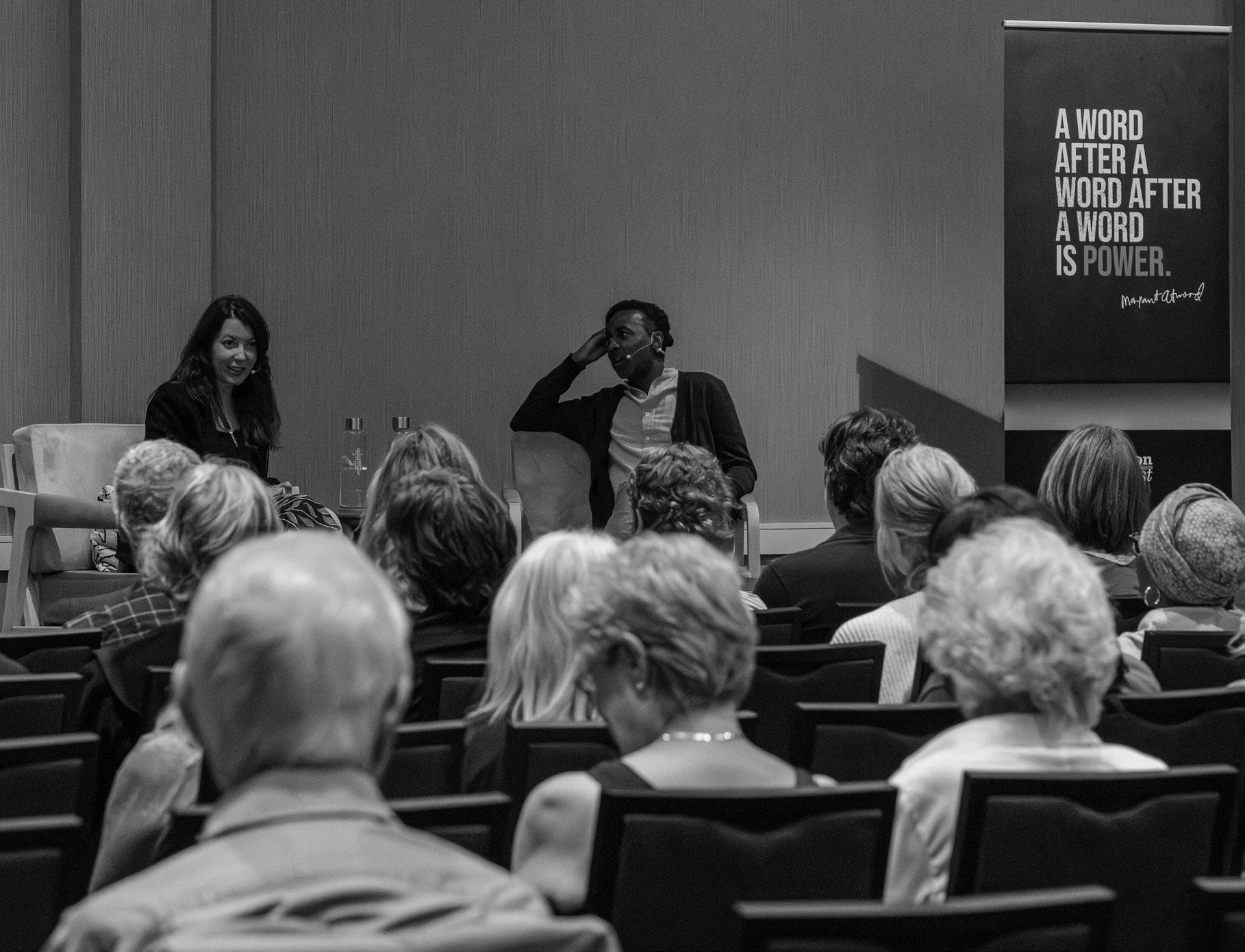
PHOTO BY JASHAN DUA
which asks the question, ‘how much pressure can a marriage withstand?’” he said.
Endling, Reva’s 2025 Booker Prize longlisted novel, tells the offbeat story of a scientist, her snails, and the Ukranian bride-tourism industry. Reva, originally born in Ukraine, said Endling “[explores the] motivations of the men to come to [Ukraine], but also whether or not the women want to be married”. In the case of Endling’s misanthropic, hilarious protagonist Yeva, these women do not. Of course, “they’re not all like this—not all men,” Reva joked onstage.
Williams asked Reva how her book “works” with a smile.
The conversation felt casual, as if the audience caught them chatting over coffee. This intimacy made room for questions which flowed organically between Reva and Williams, and from the audience during a Q&A session. Reva described Endling as a train derailing.
“It’s a wild ride,” she said onstage. According to Williams, You’ve Changed breaks down more precisely, “[pivoting] at every third” with twists in storytelling.
Both authors did extensive research to make their books work. You’ve Changed’s protagonist, Beckett, is a contractor. Williams took an eleven-week course on how to build a house to get inside Beckett’s mind, which
The Journal. “I felt terrible for the bands, but I think overall everyone had a good time, and that’s what mattered,” she said. Going forward, MUSE will be exploring other possible venues, and is considering a reduced number of musicians on the lineup, Bassett said. Despite derailments by a slew of audio-visual issues, audience members who stuck around until the end were rewarded with great music the whole night through.
culminated in him helping to build an actual house inside a warehouse space.
For Reva, Endling wasn’t only about the fictional characters she was creating. Telling the story became difficult as its “setting [was] being destroyed in real time” during Russia’s invasion of Ukraine, Reva said. She grappled with questions like the role of fiction as a response to reality, and her role as a storyteller in reflecting real-life narratives.
To understand the men who participate in bridal tourism, Reva read books by American men which promised “the secret to unlock Slavic women,” she said onstage. “I learned a lot about my own species,” she joked to applause from the audience.
By contrast, You’ve Changed is more character-driven. The novel is set in Vancouver, Canada, but it’s the excruciating tension between the characters that gives the story purpose.
“This is a book of marriage from a man who’s not married,” Williams said onstage. For him, writing is vulnerable; Williams said if he could write under a pen name, he would.
“We live for a long time, for years, just you and the novel,” he said onstage. It can be difficult to bring others into such a specific relationship, similar to how You’ve Changed invites readers into the messy heart of a such a marriage gone awry.
Acts filled The Mansion’s attic space on Sept. 23.
PHOTO BY CLAIRE BAK
Assistant Arts & Culture Editor
Daniel Gill
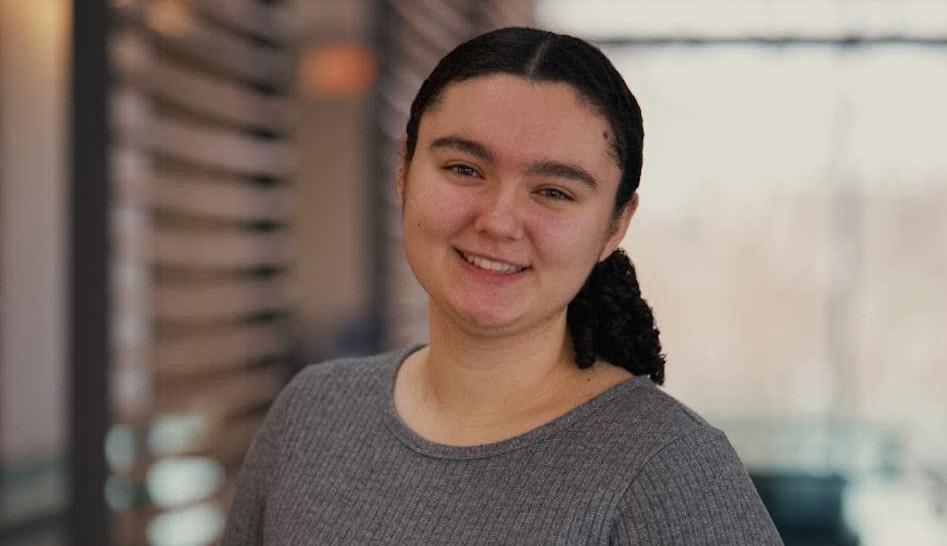
Turning sentences into steps toward progress
No, I don’t know their crimes, and no, I’m not scared
Hillary Andru Contributor
I’ve worn many hats as a volunteer, but none have reshaped me quite like stepping into the world of correctional service.
I first learned about Queen’s Correctional Service Volunteers (QCSV) at Queen’s in the Park during Orientation week of my first year. I was sold on the idea of volunteering in prisons immediately and eagerly awaited the day the club opened applications. After completing the application, interview, and extensive boundary training provided by QCSV, along with background checks and fingerprinting through Correctional Services Canada (CSC), I was officially cleared to volunteer.
“After completing the application, interview, and extensive boundary training provided by QCSV...I was officially cleared to volunteer.
My first shift was at Henry Traill Community Correctional Centre, a low-security halfway house for offenders who had served two-thirds of their sentence. When I walked into the facility, the guard at the front desk asked if I was nervous; I gave him an excited “No!” and joined my fellow volunteers upstairs in the recreation room, where the residents were waiting.
I sat and talked to one offender the entire hour and
a half I was there, while my co-volunteers played pool or talked to other offenders.
Our conversation felt remarkably normal. In my sessions at Henry Traill, I’ve been taught countless card games, learned how to play pool, listened to lots of great stories, and sang group karaoke. I’ve never been made to feel uncomfortable in any of my correctional volunteering, but Henry Traill is a particularly relaxed environment. As I continued my shifts, I got to know the regular attendees and gained confidence in my ability to connect with the offenders.
Eager to gain more experience, I taught workshops in the medium-security unit at Collins Bay Institution. Our sessions happen bright and early on Monday mornings, and I was consistently impressed by the engagement of the offenders.
A consistent group of 16 offenders who attend our weekly sessions, and they’re extremely motivated to contribute to group discussion. Funnily enough, the group resembles a typical classroom: we have a class clown, some quieter participants, and others who ask endless questions. I often leave the sessions feeling that I’ve learned more than I’ve taught.
“I often leave the sessions feeling that I’ve learned more than I’ve
taught.
For my next correctional volunteering adventure, I joined a small group of volunteers who facilitate the 7th Step Program at Millhaven
Maximum Security Institution each week. The program normally runs outside of institutions as a support group for people who have been previously incarcerated.
The program consists of seven weeks of structured discussion about strengths, weaknesses, goal setting, and emotional management. QCSV has adapted the program to serve men currently incarcerated in the Structured Intervention Unit (SIU), formerly known as solitary confinement or administrative segregation. Two volunteers work with one offender, allowing for an individualized experience.
I was fortunate to complete the full seven weeks with the offender I was paired with. Because the 7th Step Program is inherently more personal than other volunteer experiences, we had some deeply vulnerable conversations. His life story was devastating, marked by trauma, loss, danger, and pain. Yet despite this, he was funny, motivated, and determined to help youth avoid the path he had taken. Saying goodbye after so many meaningful conversations was difficult, and I hope he continues to pursue his goals.
Over the summer, I participated in phone calls with men in the SIU. Even men in one of the highest levels of prison security can be incredibly introspective. I love hearing about their goals, motivations, and interests. I’ve always appreciated the offenders’ willingness to talk with a stranger from Queen’s. Believe it or not, we usually find more common ground than one might expect.
I’ve received a fair share of critical comments about my choice to volunteer
with offenders. I choose to believe many of them come from a place of concern about my safety. I understand this perspective. Most people expect us to have some sort of plexiglass between us and the offenders. In reality, with the exception of the phone calls, we’re in the same room as the offenders, they aren’t handcuffed, and we’re often outnumbered.
“Most people expect us to have some sort of plexiglass between us and the offenders.
In fact, in the 7th Step, we’re actually locked into the room with them. All procedures we follow are designed for the safety of everyone involved, and we always have a way to get help in an emergency.
Inmates aren’t waiting for the next opportunity to cause harm. The men who engage in our programs do so voluntarily, whether that is for personal development, time out of their cell, or demonstration to the parole board that they’re committed to improvement. We give them our respect, and they do the same for us. No matter your opinion on the level of punishment offenders deserve, these men have already been sentenced. Many of the men I’ve worked with will be released within my lifetime. I would rather offenders have had the opportunity for socialization and programming before release than them returning to the community without those valuable experiences.
Crime’s indeed bad, but the offenders will be the first to tell you that. They support the idea of “do the crime, do the time”. But they will also tell you that they want to improve. Some of these men have families and children on the outside who they want to provide for. Some have exciting career aspirations. Some just never want to return to a correctional institution. I would like to think we all do the best we can with what we have been given, and the sad reality is that many of these men weren’t given much.
I don’t think that any of us could say with absolute certainty that we wouldn’t have ended up in the same situation as these offenders if we had lived through their circumstances. The way I see it, correctional volunteering is something I can very reasonably do to help a population who haven’t had every advantage in life.
Now, as the current Millhaven Program Coordinator for QCSV, I organize our phone call program and 7th Step sessions. We’re expanding 7th Step to Millhaven’s general population unit in the hopes of providing programming for more offenders. I’m forever grateful for the perspective I have gained through QCSV and my experiences in correctional institutions, and I plan to continue to involve myself in rehabilitation efforts in some way for many years to come.
Want to write a postscript? Email: journal_postscript@ams.queensu.ca
Hillary advocates for a holistic view of offenders.
PHOTO SUPPLIED BY ALLEN YAN
